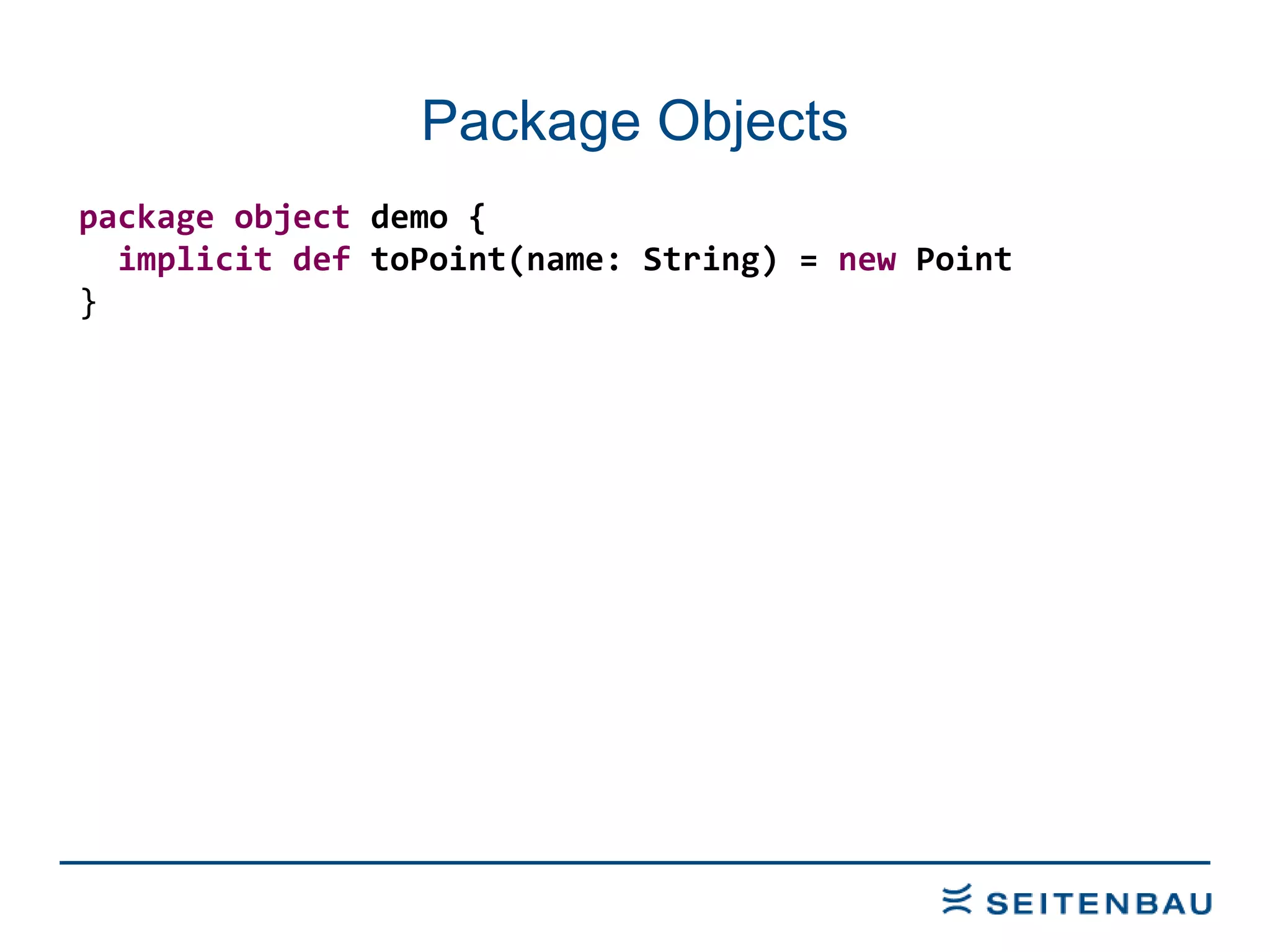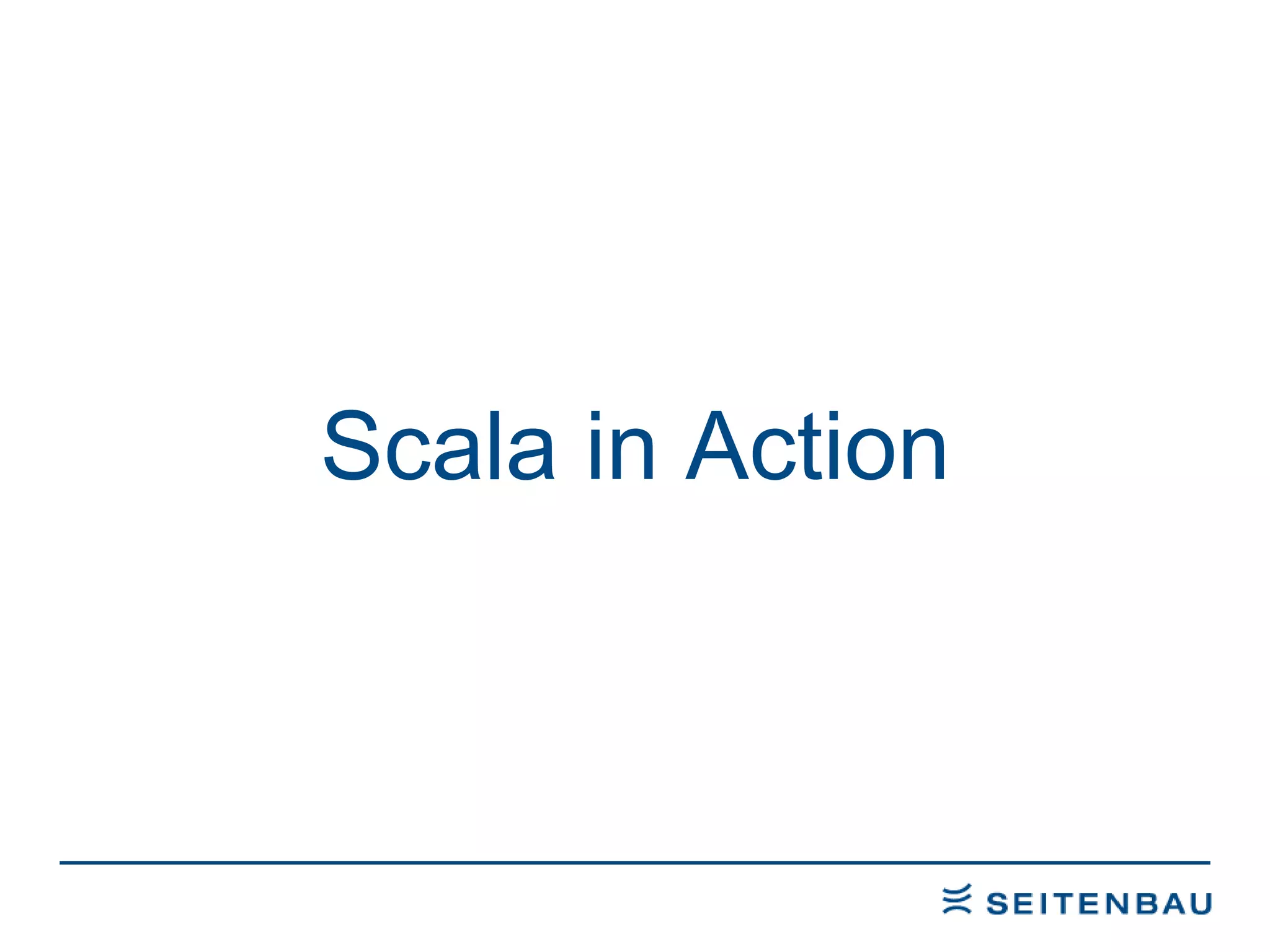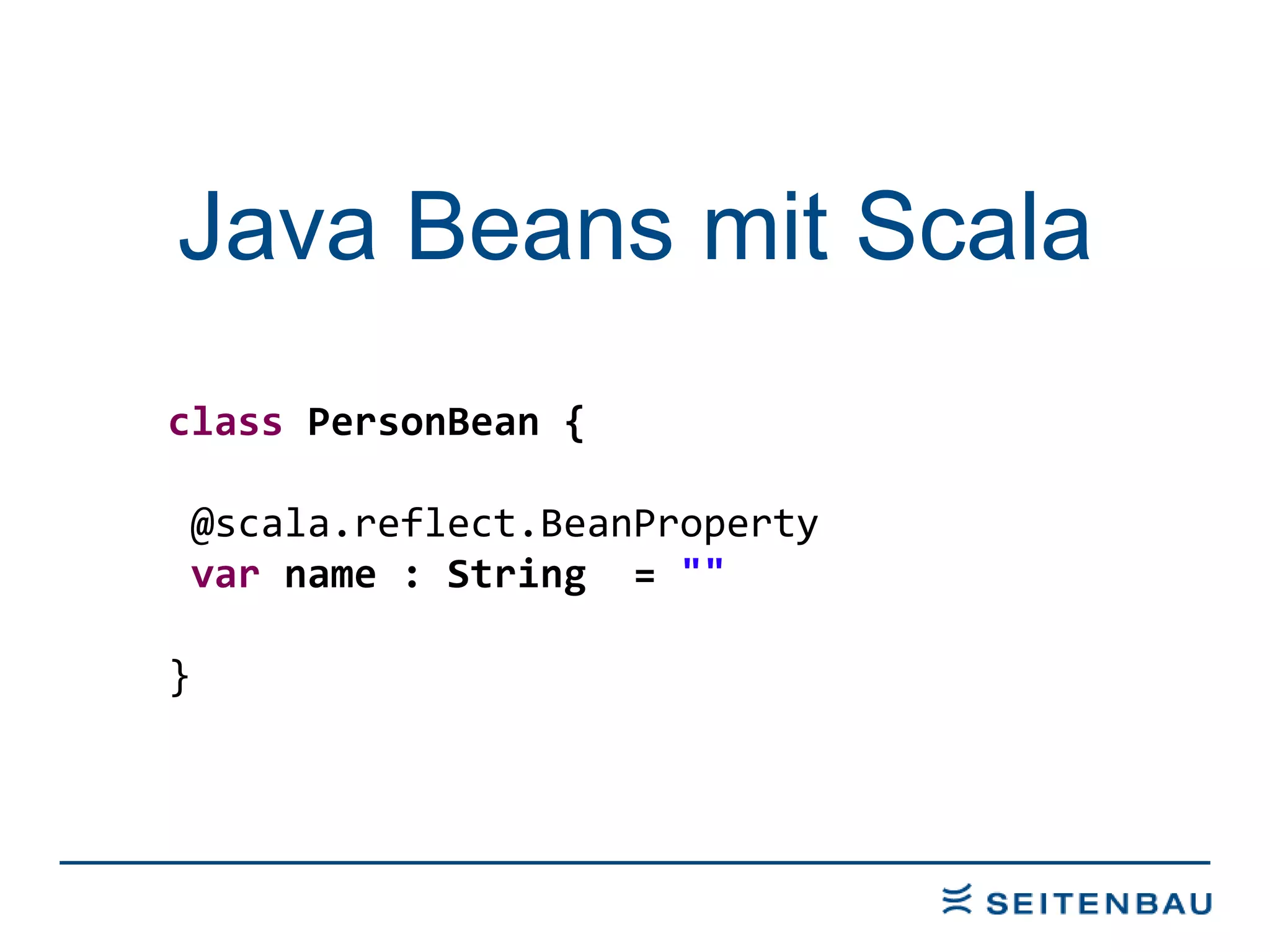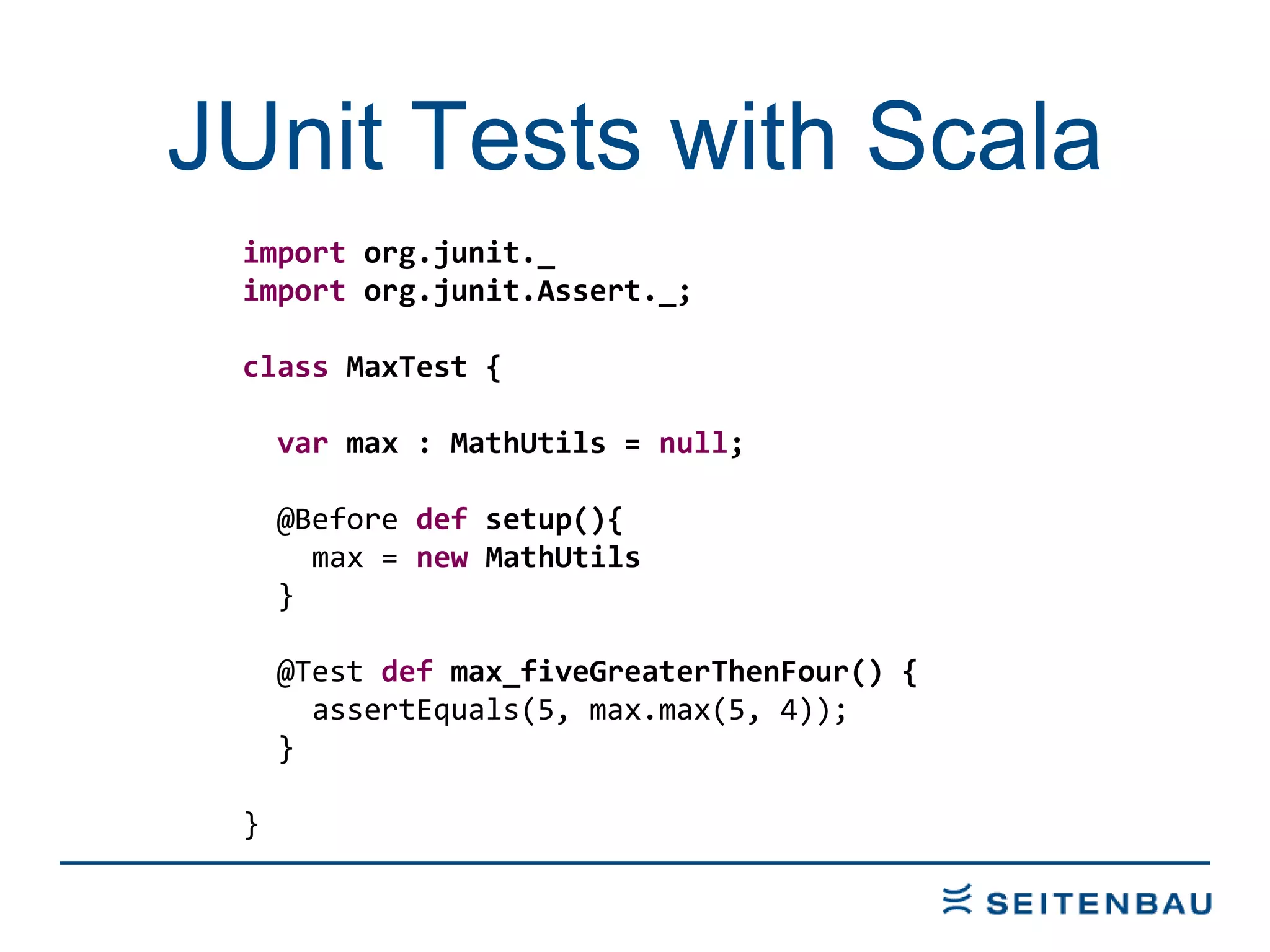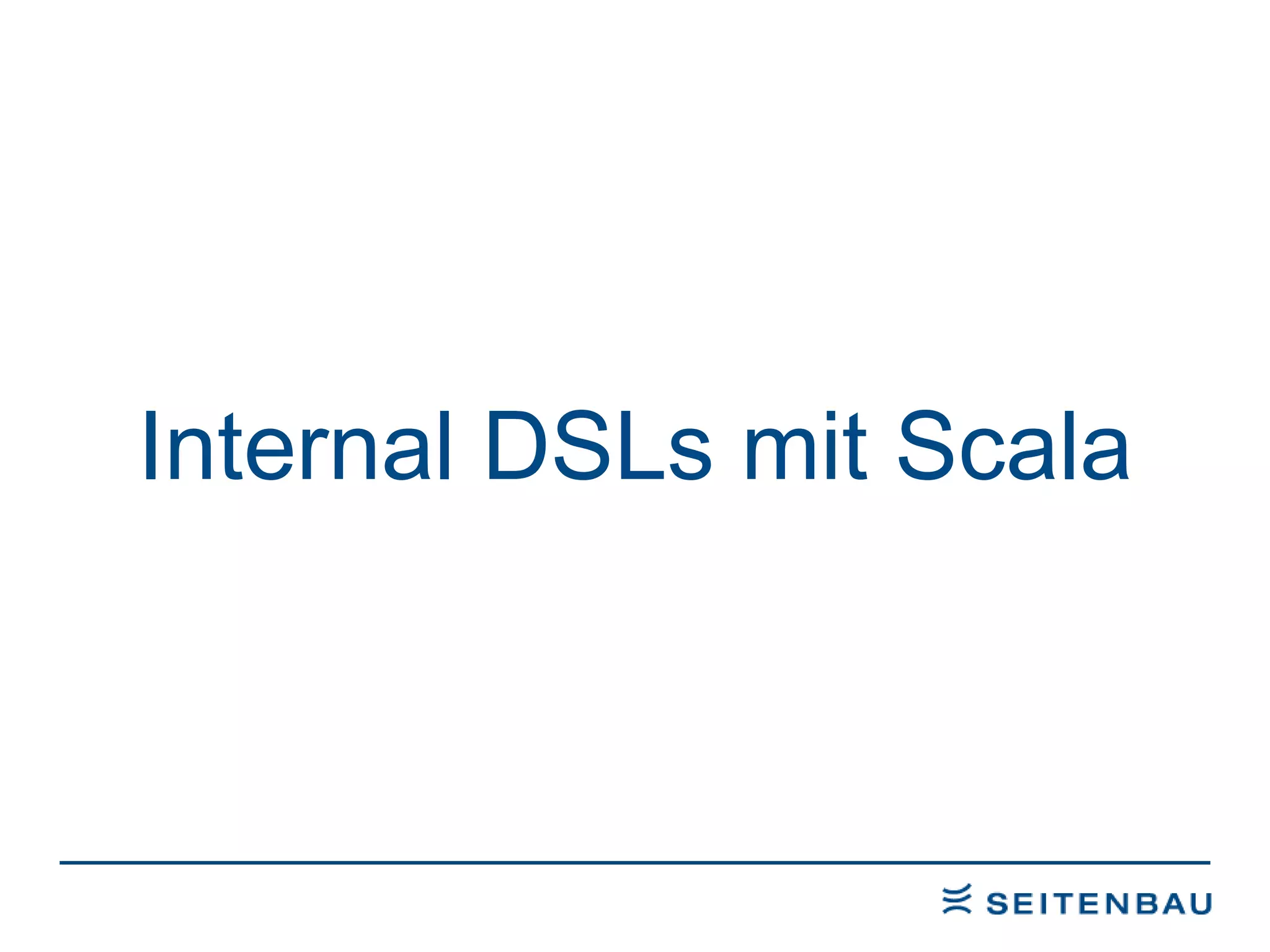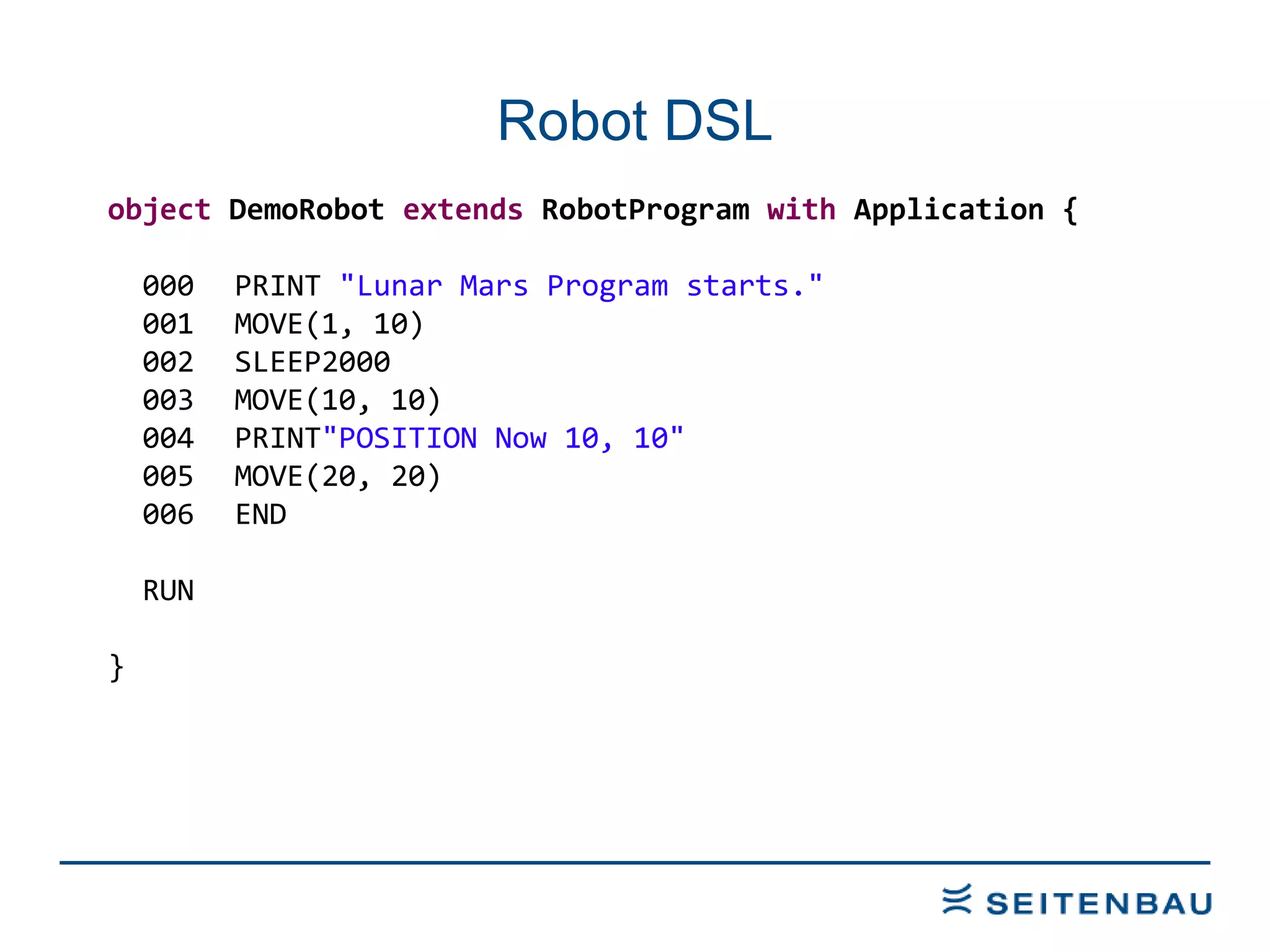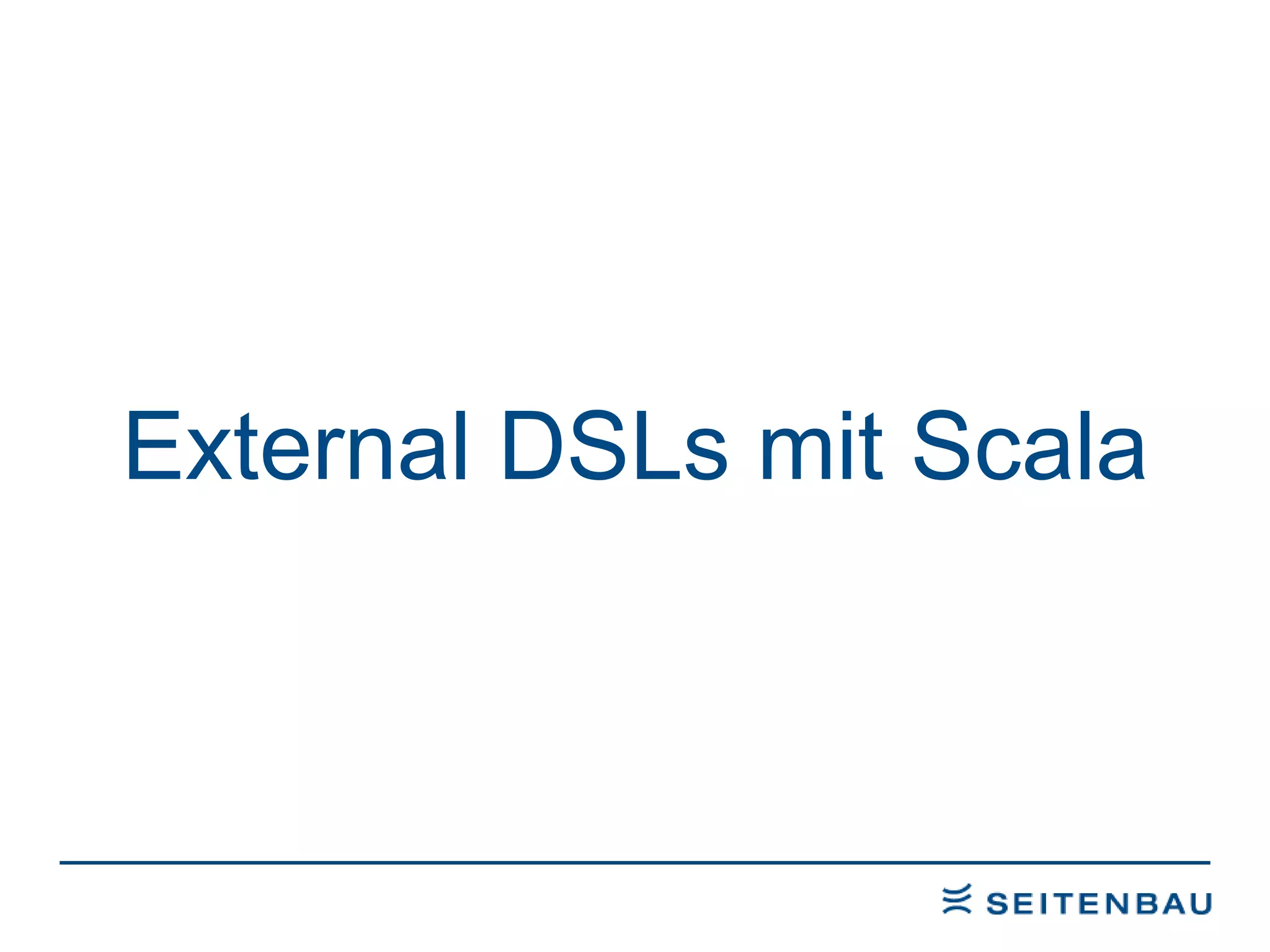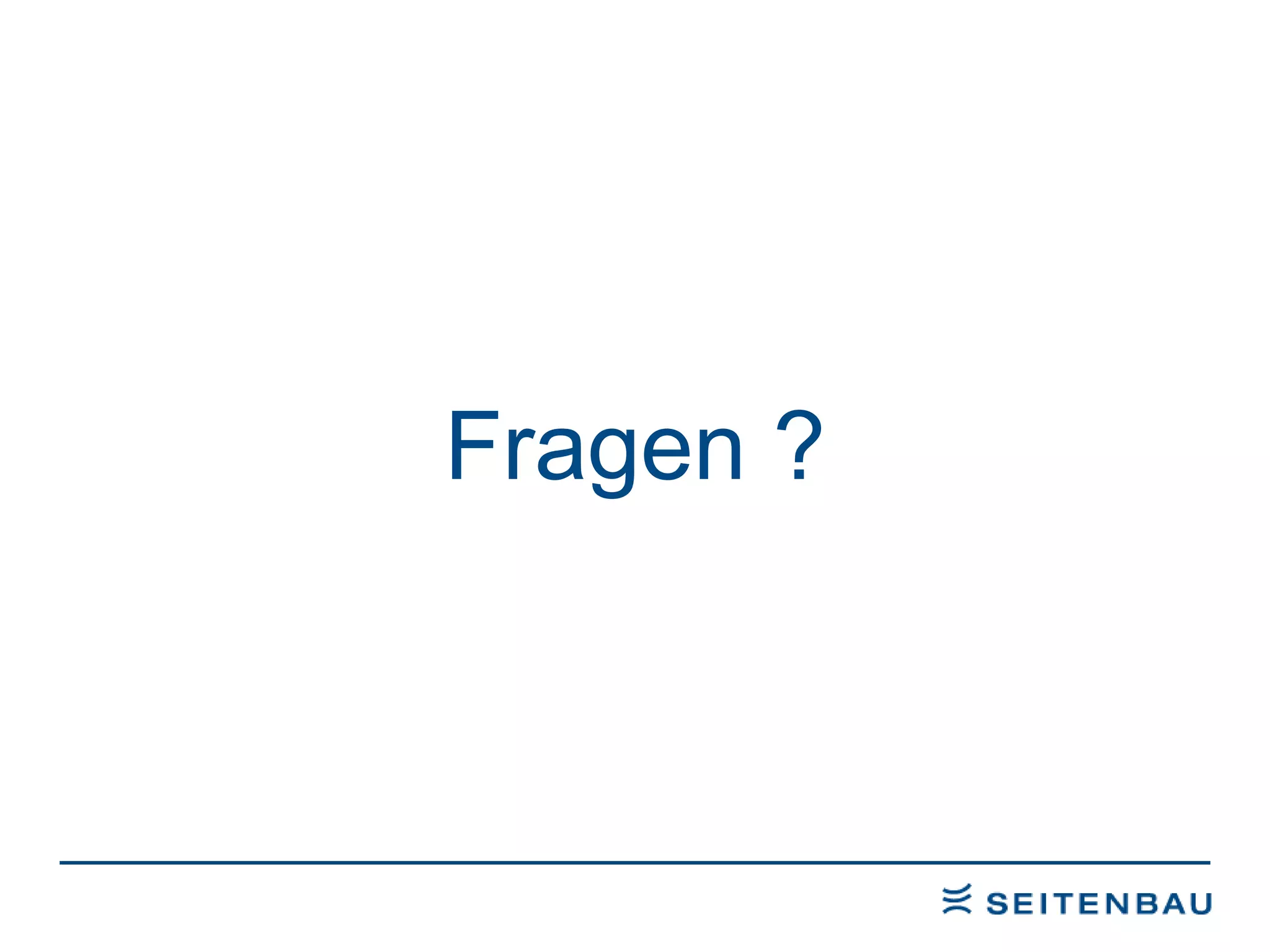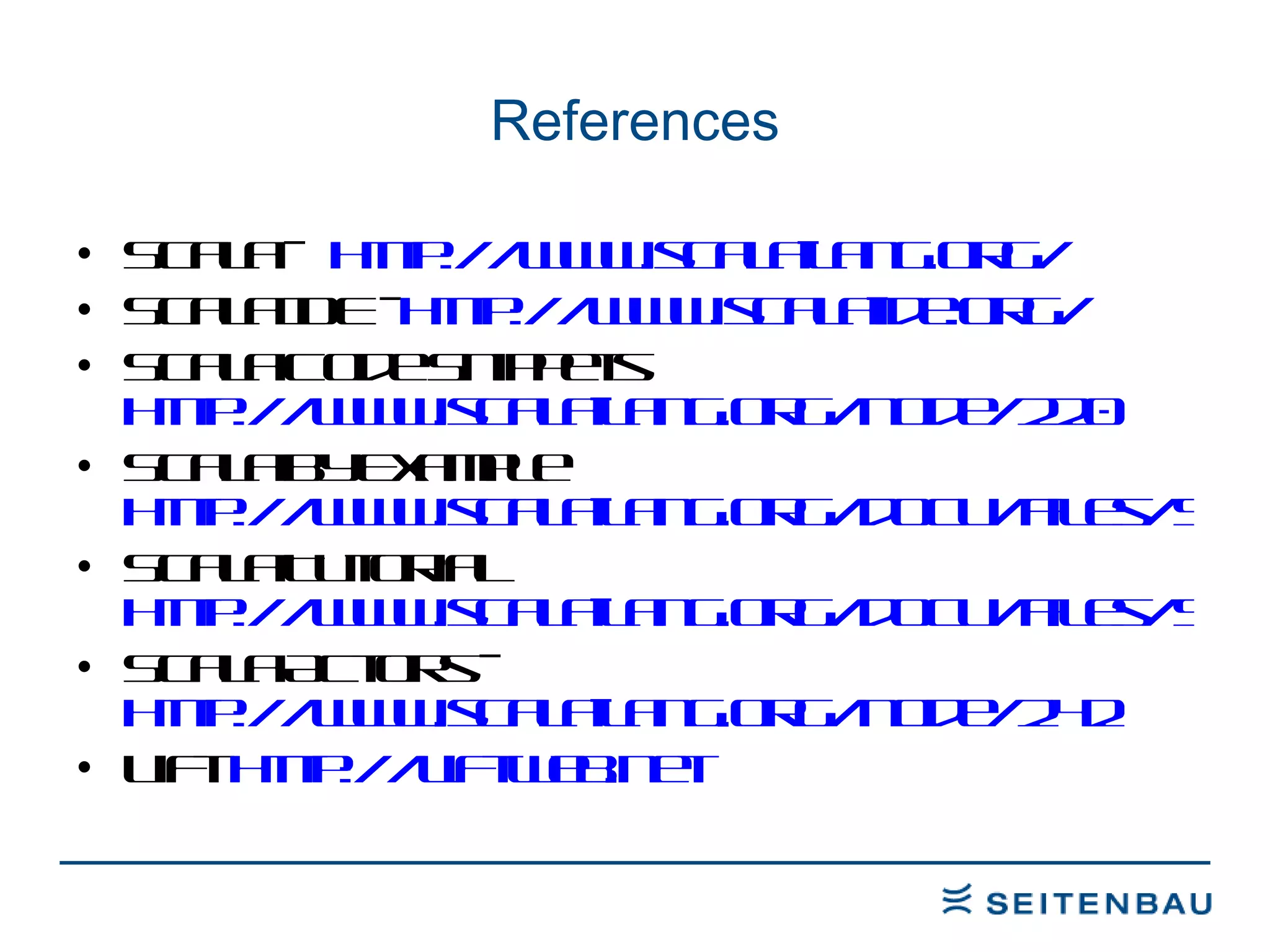The document introduces Scala and provides an overview of Scala basics including variables, functions, objects, classes, traits, pattern matching, for-comprehensions and more. It also discusses Scala's capabilities for generic programming, lazy evaluation, and integration with Java. Examples are provided throughout to demonstrate Scala concepts.




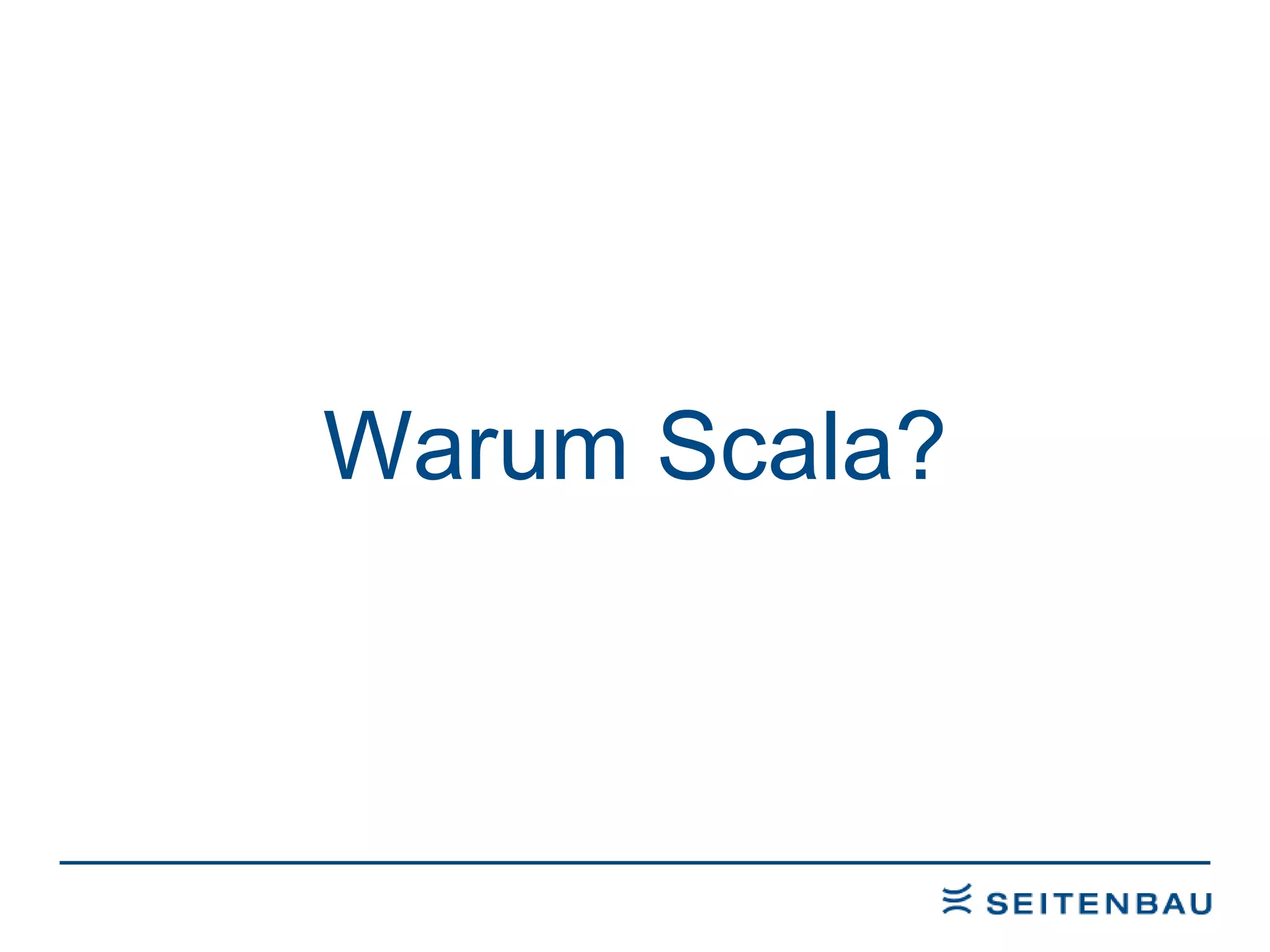
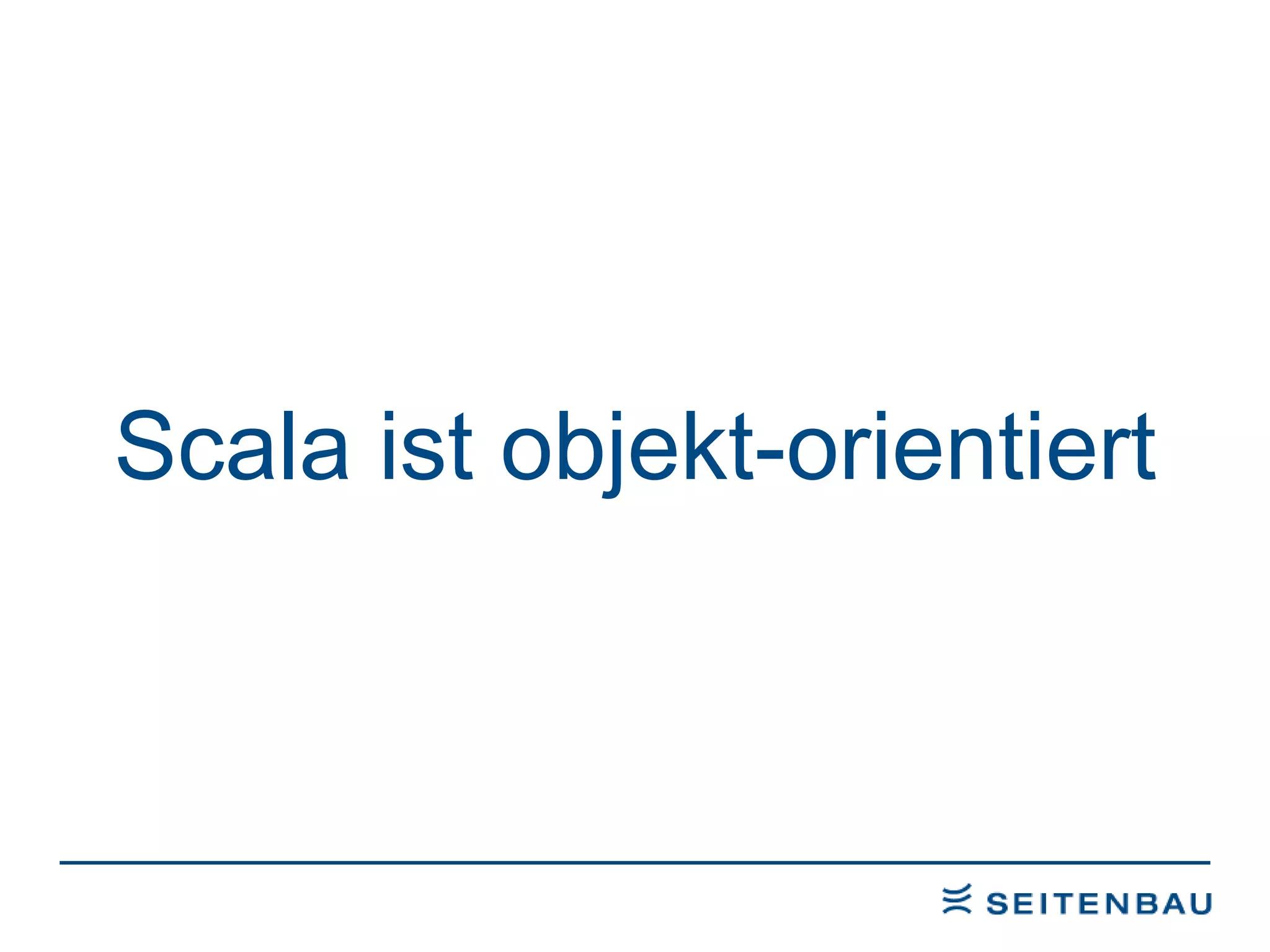

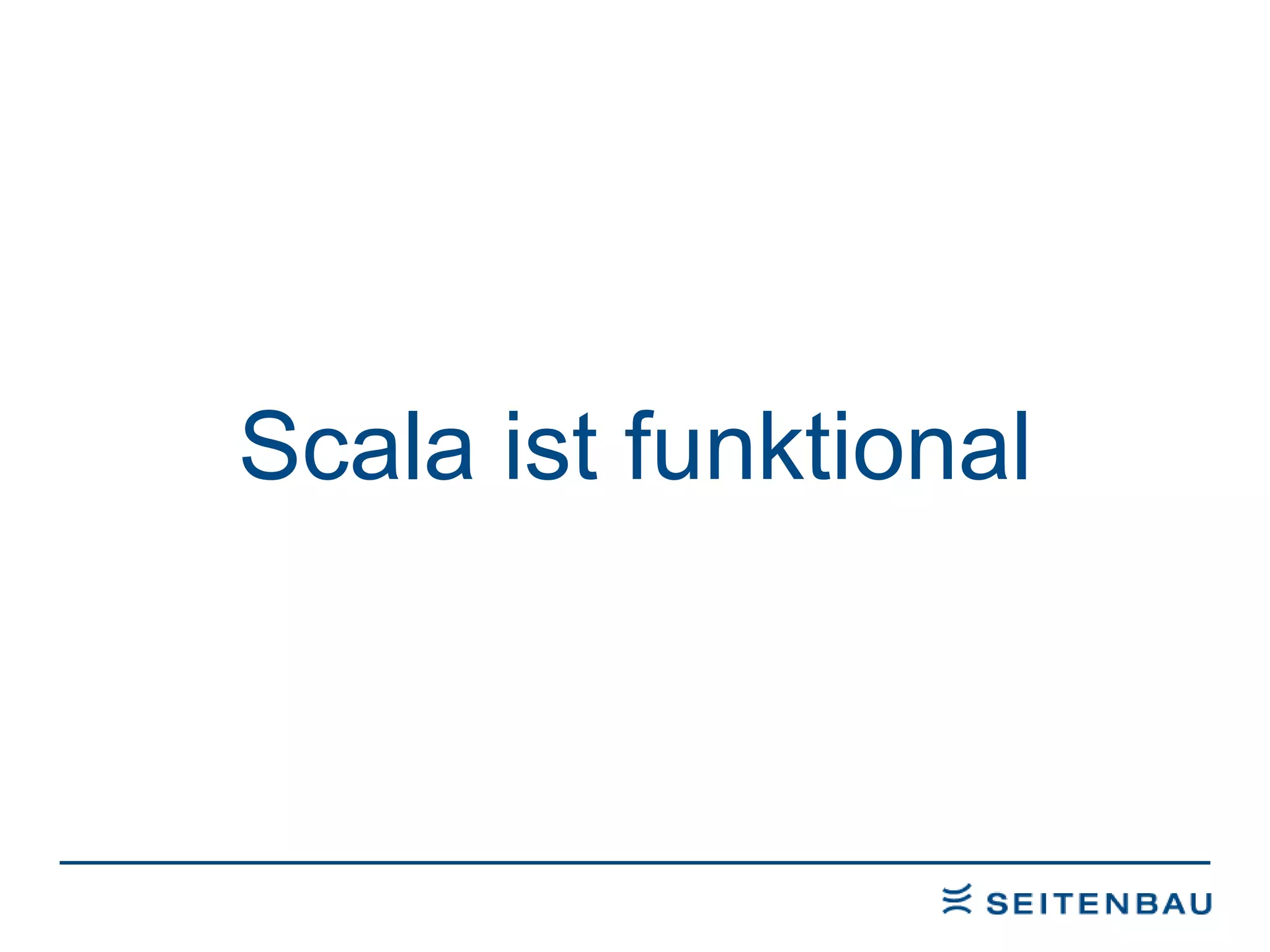
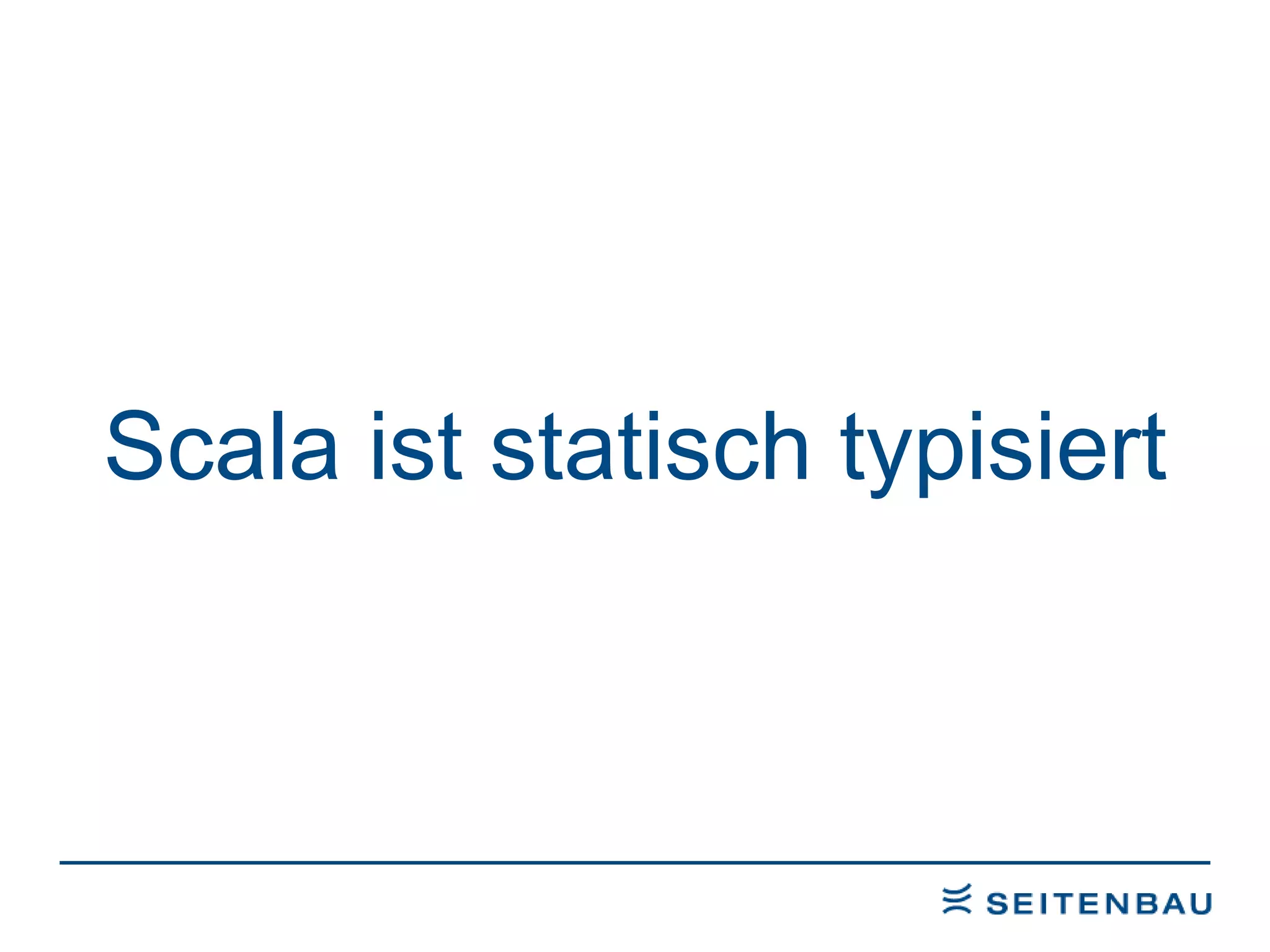
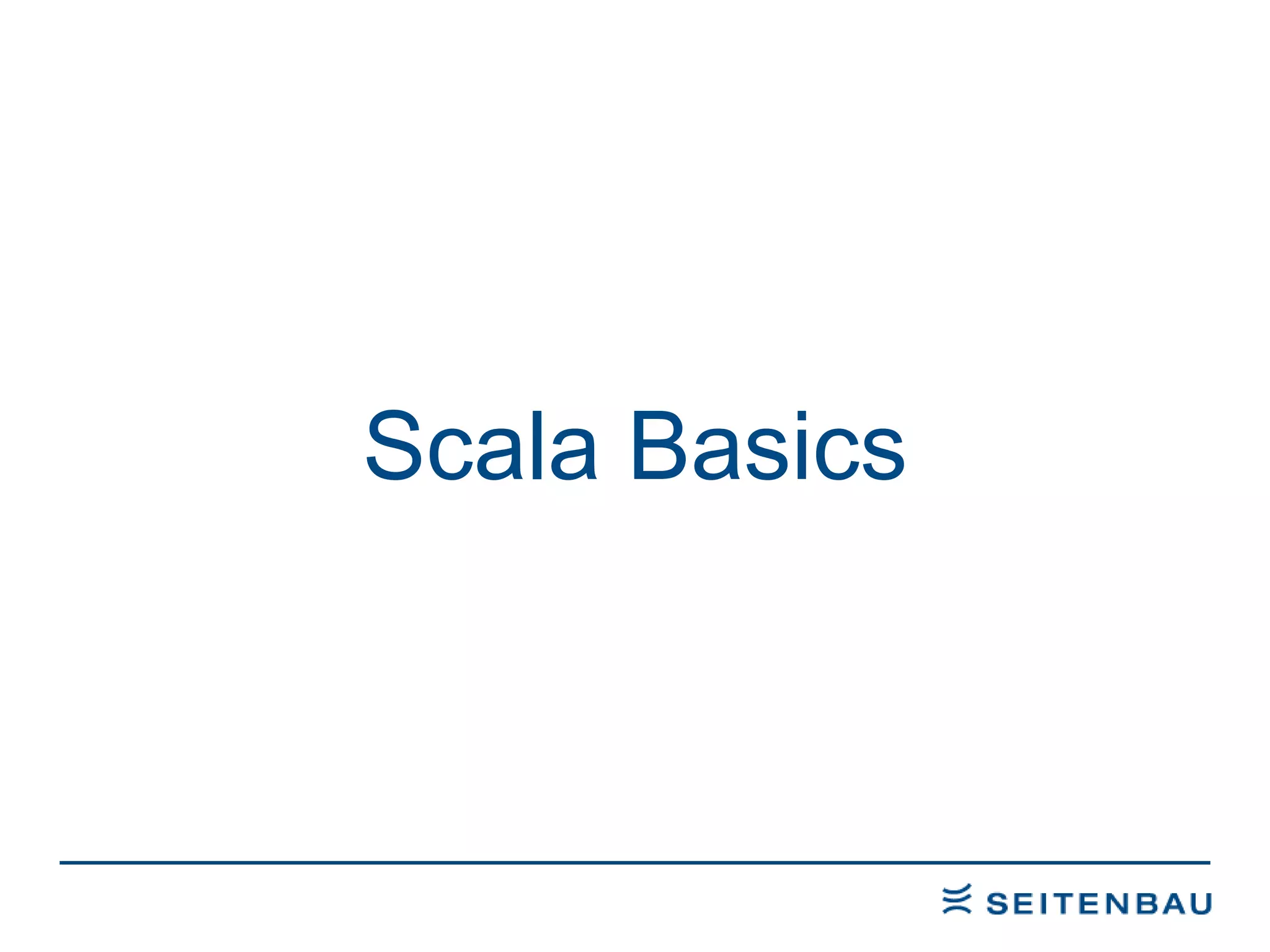
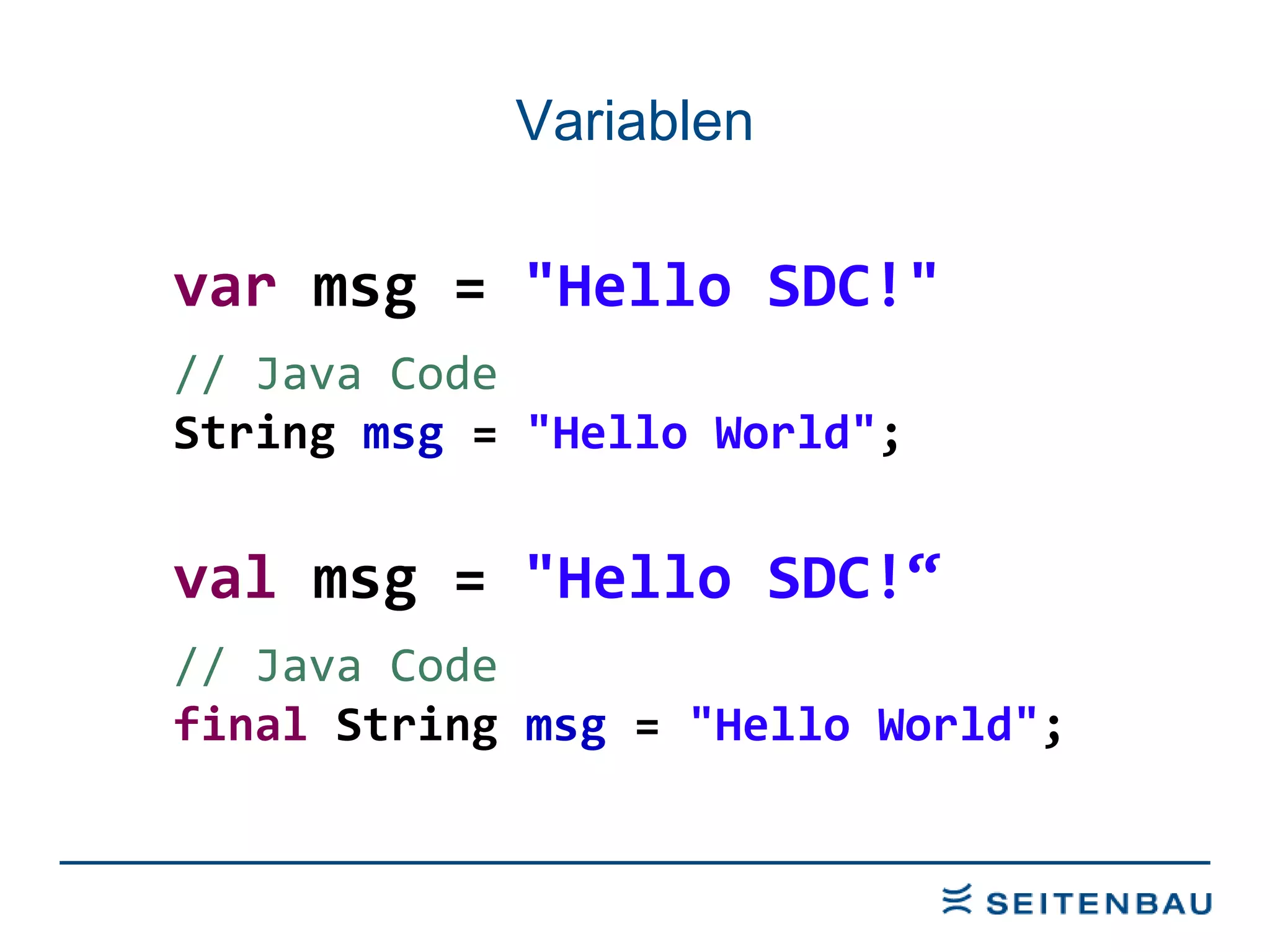
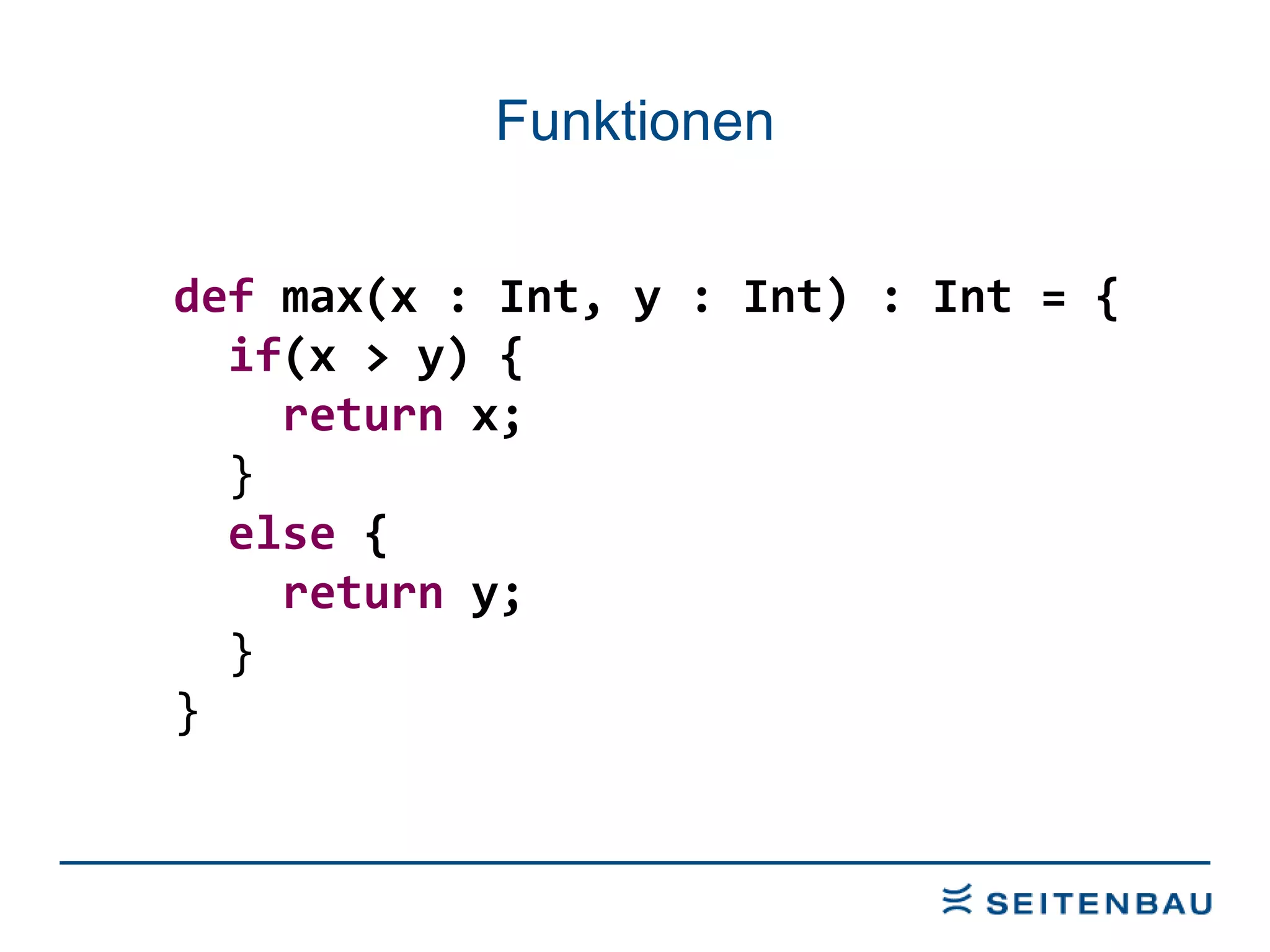
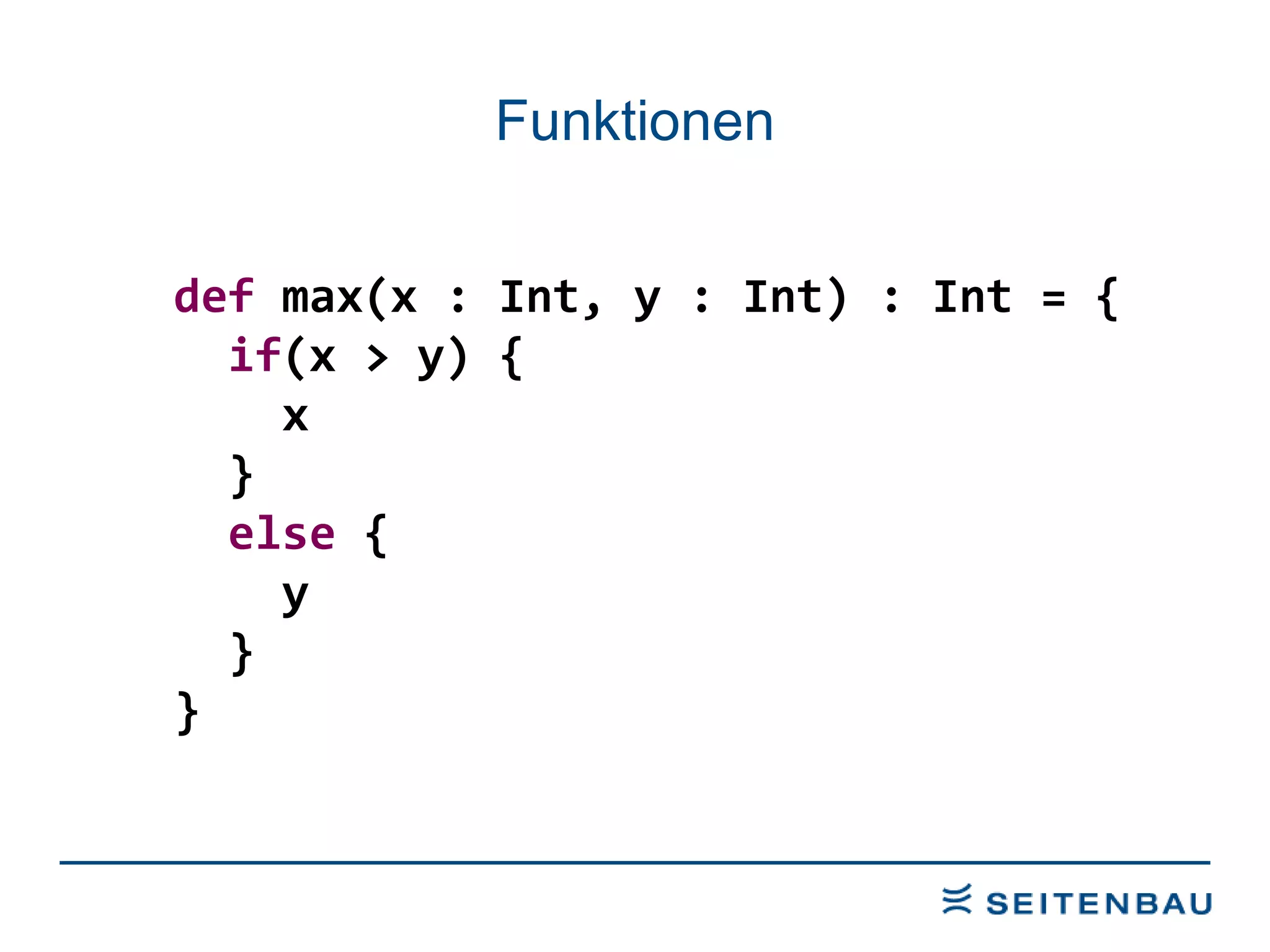
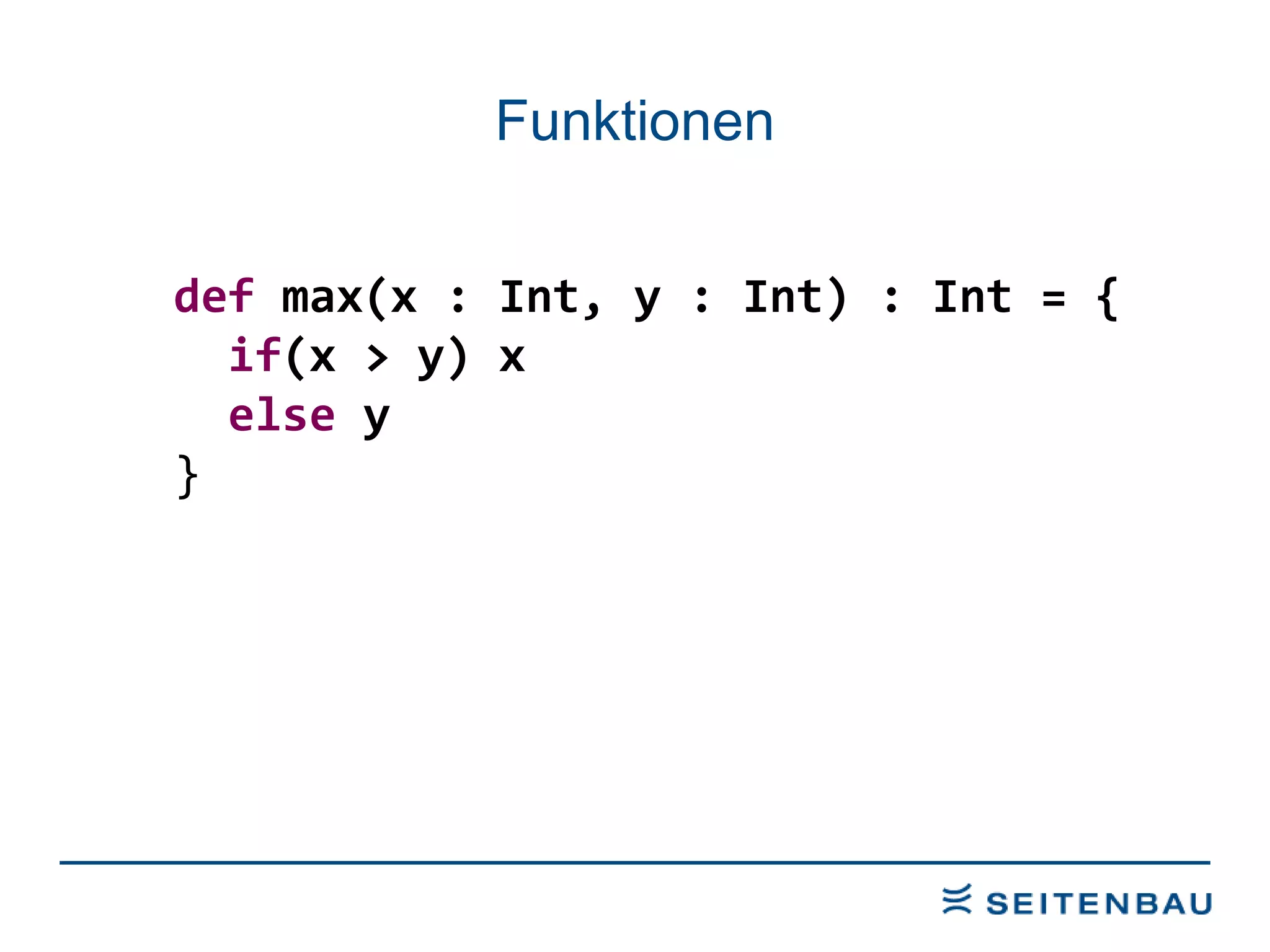
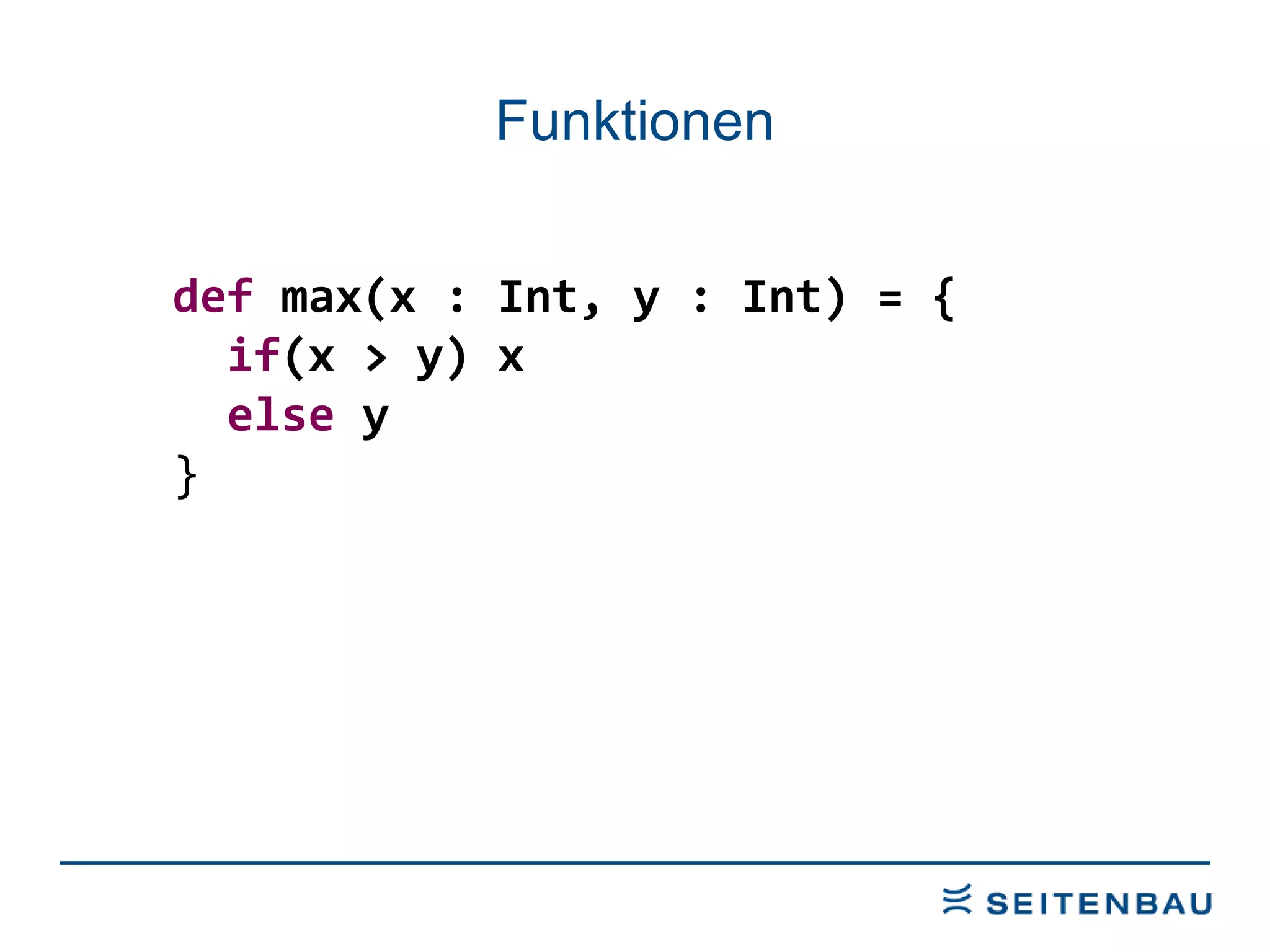
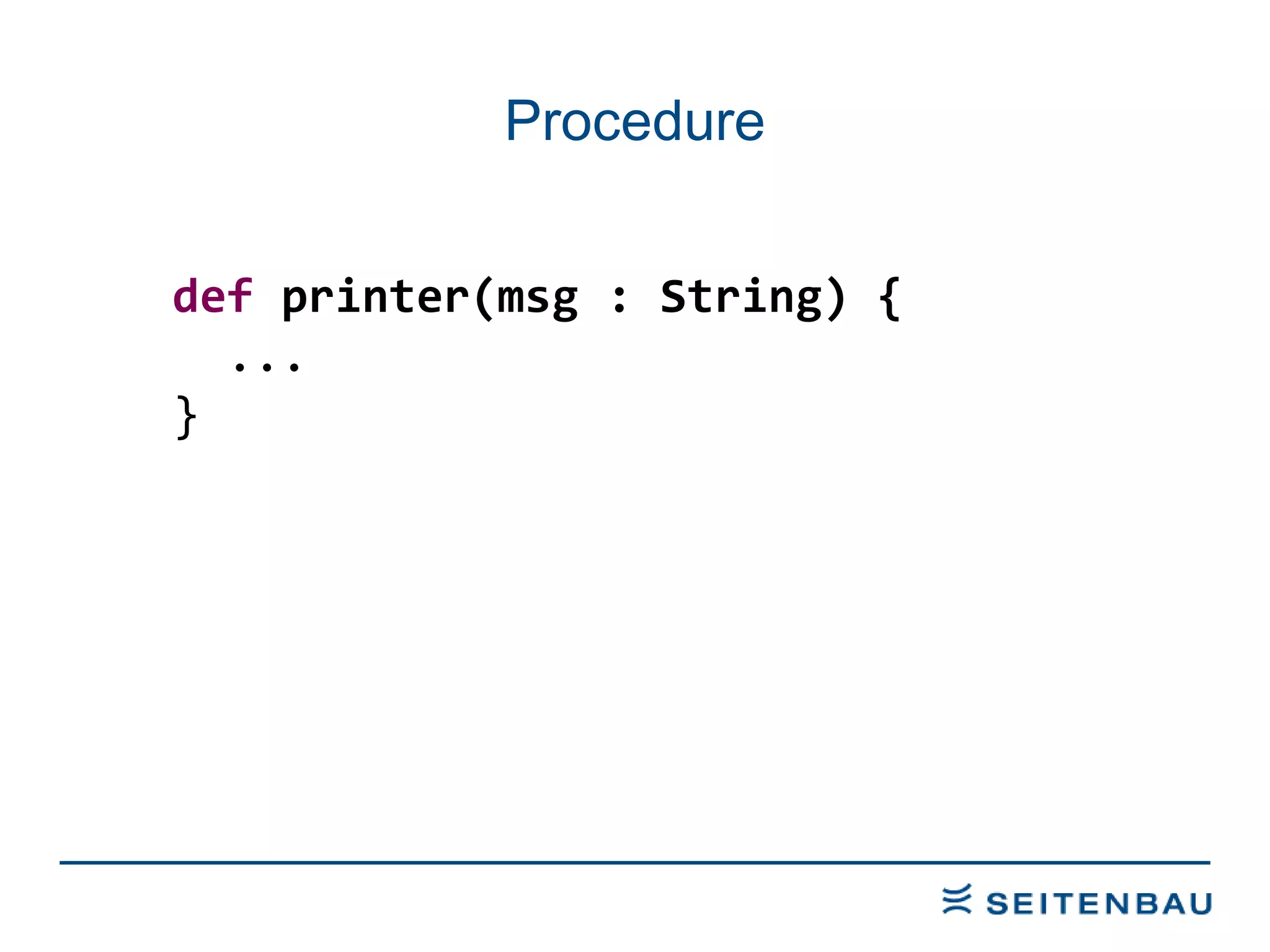
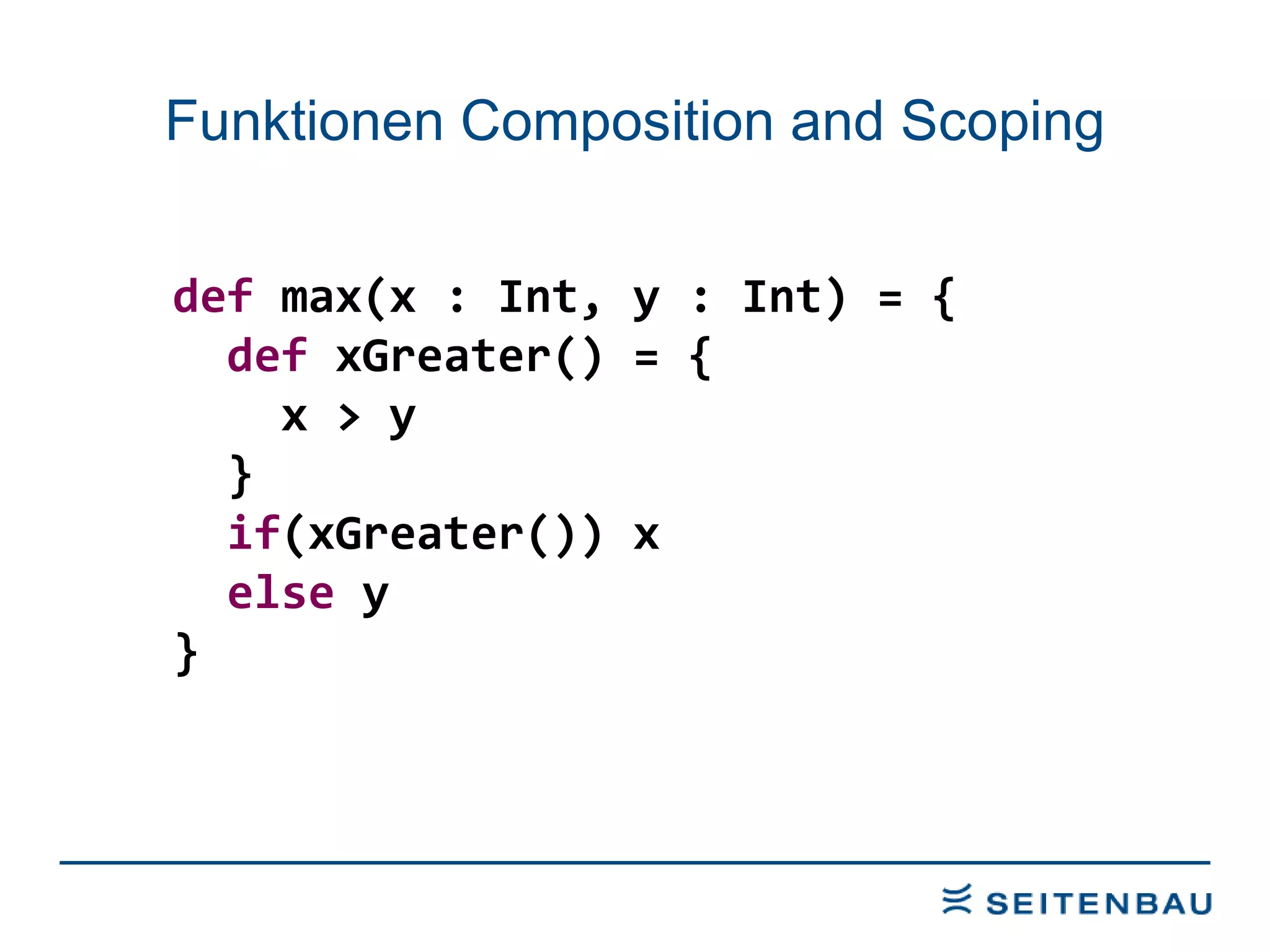
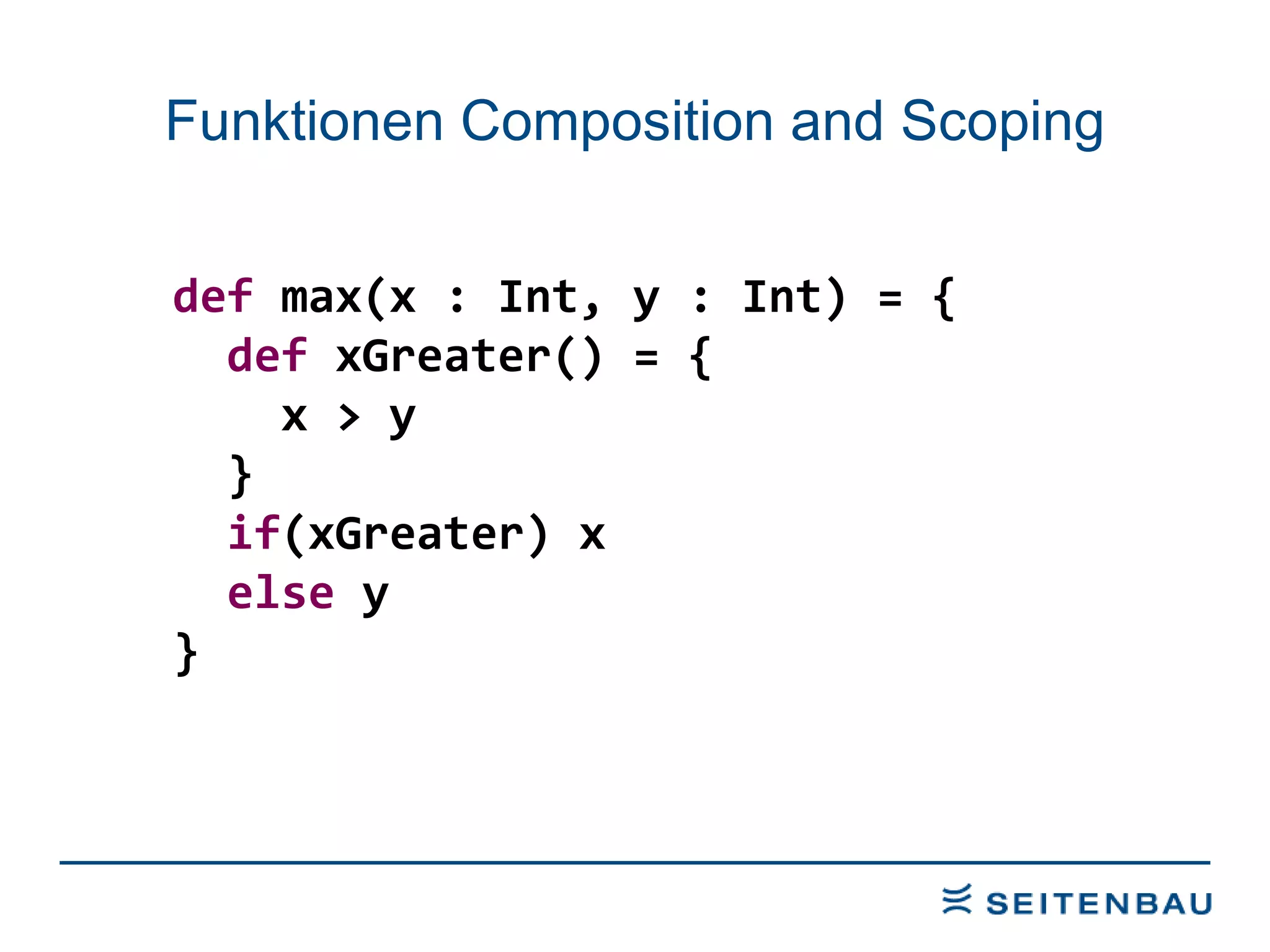

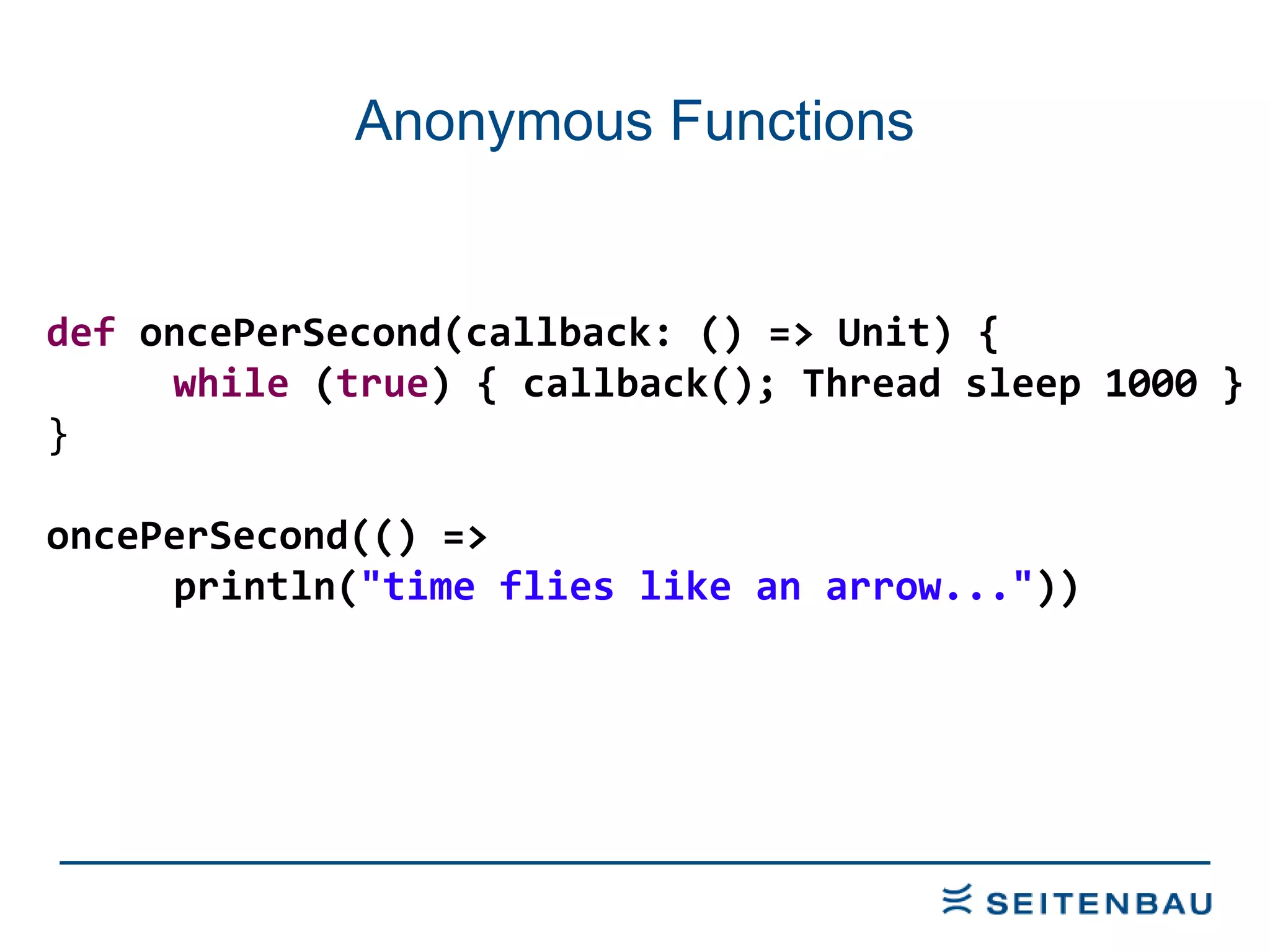
 names(0) = "Dennis" names(1) = "Christian"](https://image.slidesharecdn.com/scala-sdc2011-110924125651-phpapp01/75/SDC-Einfuhrung-in-Scala-21-2048.jpg)
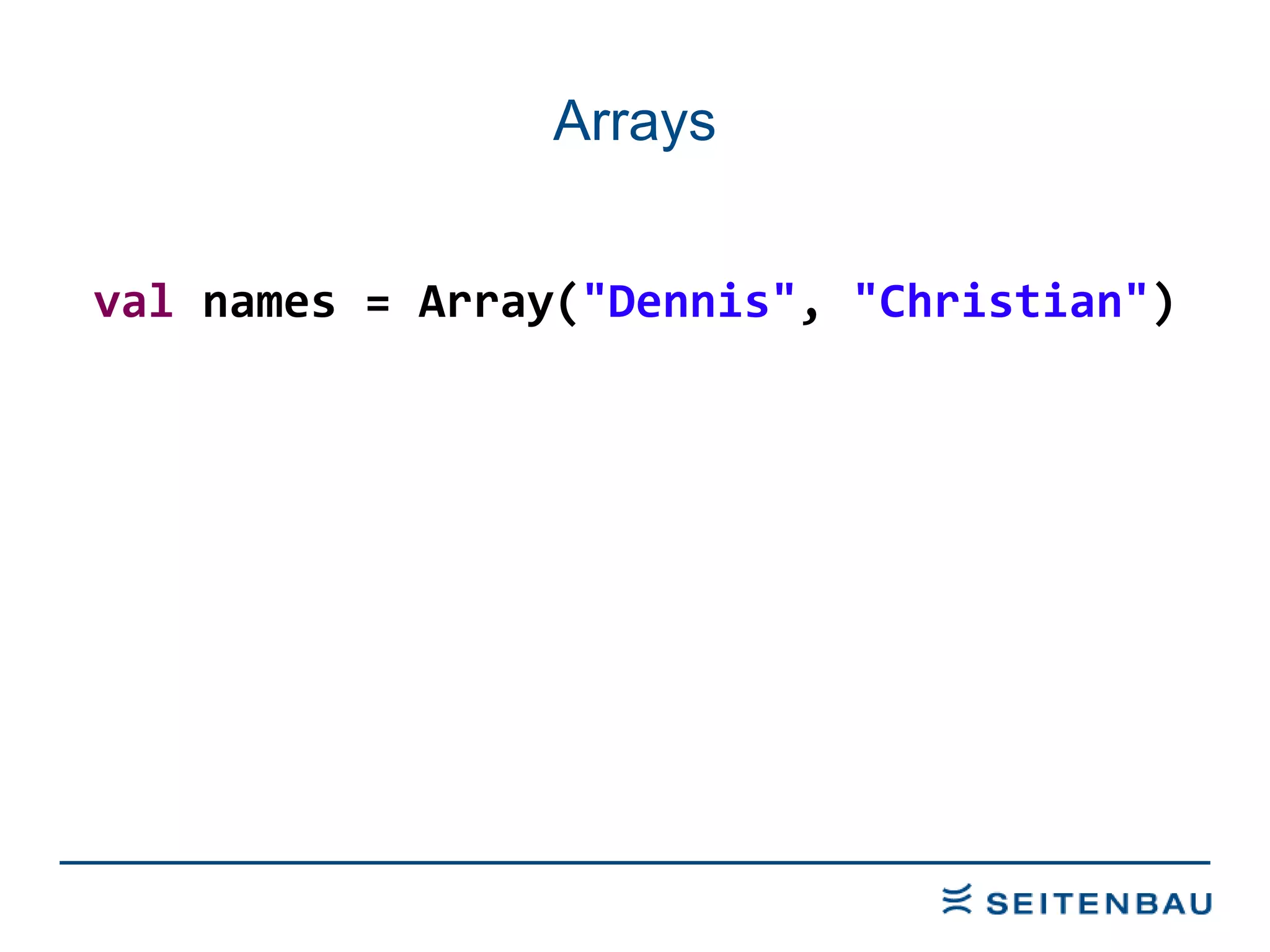
![Arrays val names = Array( "Dennis" , "Christian" , true , 0, 1.5) val names : Array[Any] = Array( "Dennis" , "Christian" , true , 0, 1.5)](https://image.slidesharecdn.com/scala-sdc2011-110924125651-phpapp01/75/SDC-Einfuhrung-in-Scala-23-2048.jpg)
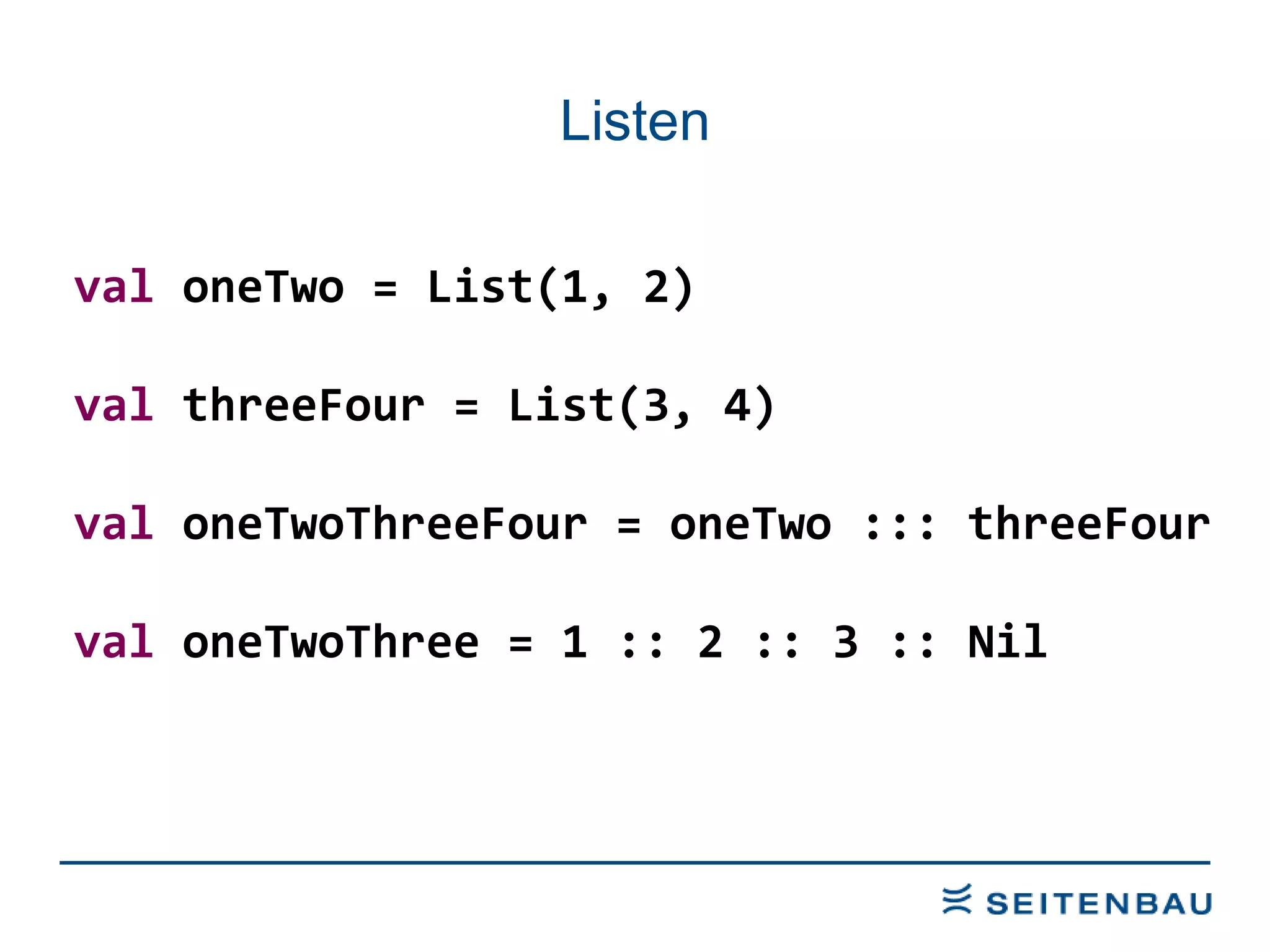
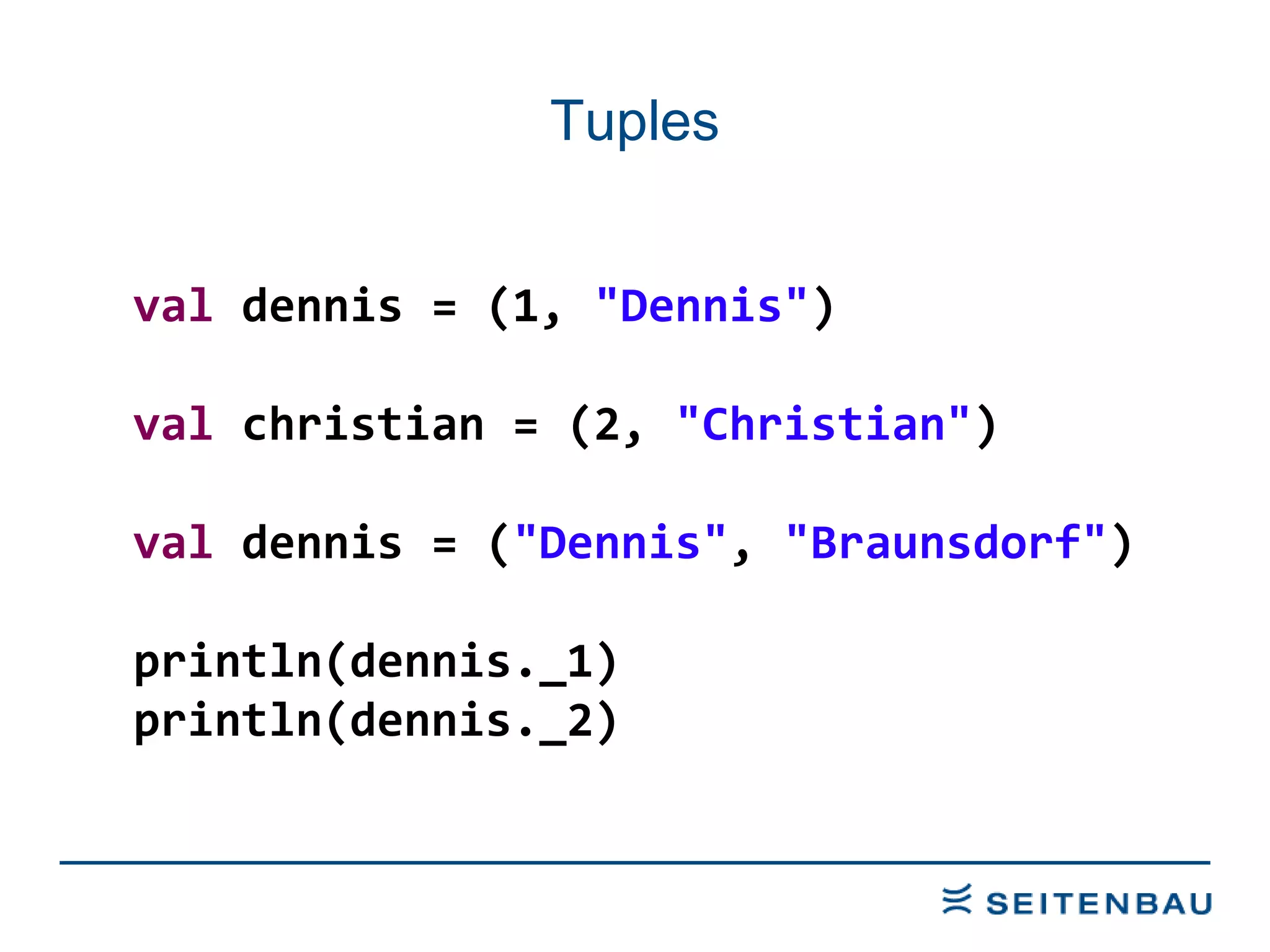
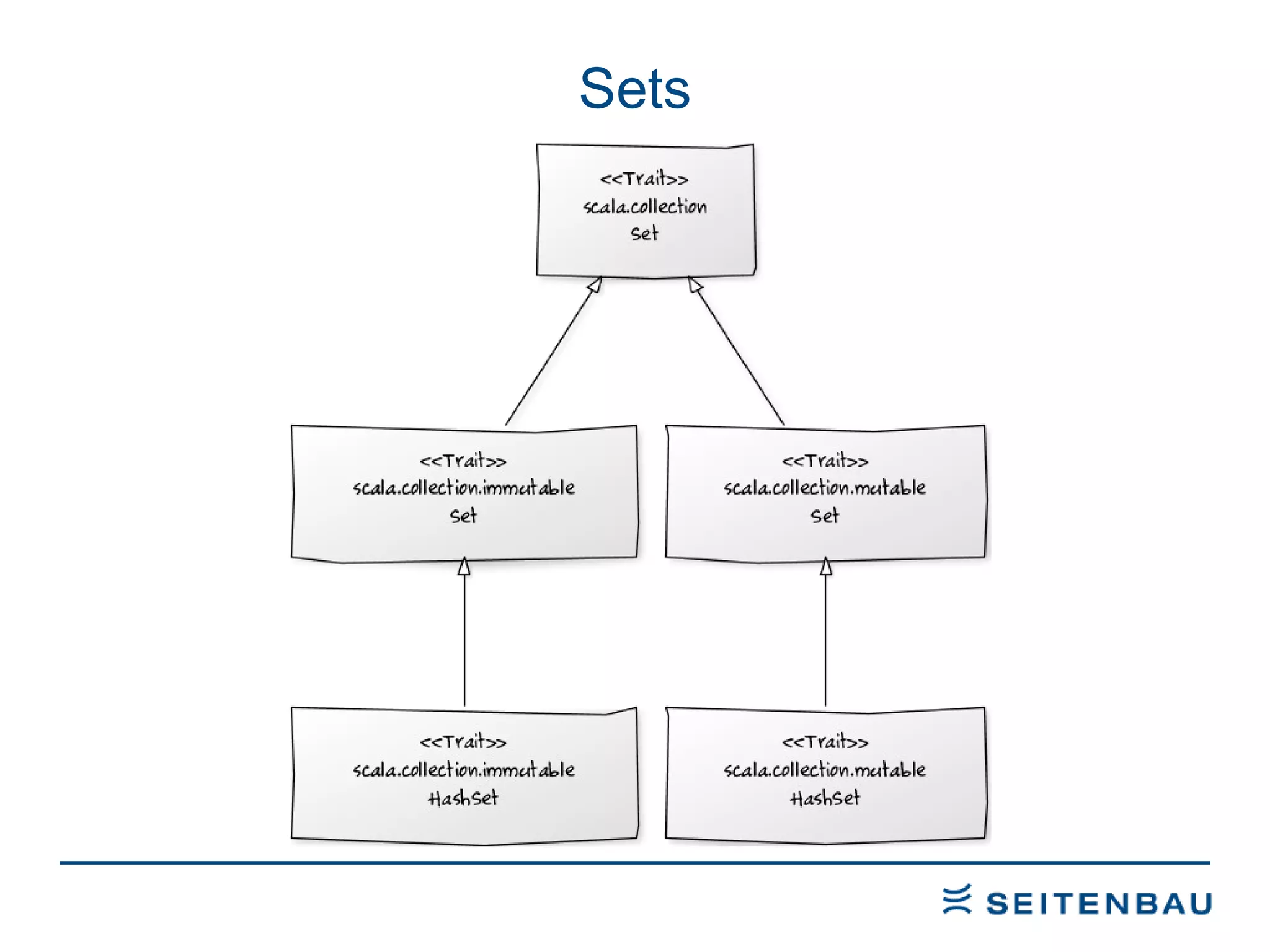
![Sets import scala.collection.mutable.HashSet val jetSet = new HashSet[String] jetSet += "Lear" jetSet += ( "Boeing" , "Airbus" ) println(jetSet.contains( "Cessna" ))](https://image.slidesharecdn.com/scala-sdc2011-110924125651-phpapp01/75/SDC-Einfuhrung-in-Scala-27-2048.jpg)
![Sets val jetSet = Set( "AirBus" ) jetSet: scala.collection.immutable.Set[java.lang.String]](https://image.slidesharecdn.com/scala-sdc2011-110924125651-phpapp01/75/SDC-Einfuhrung-in-Scala-28-2048.jpg)
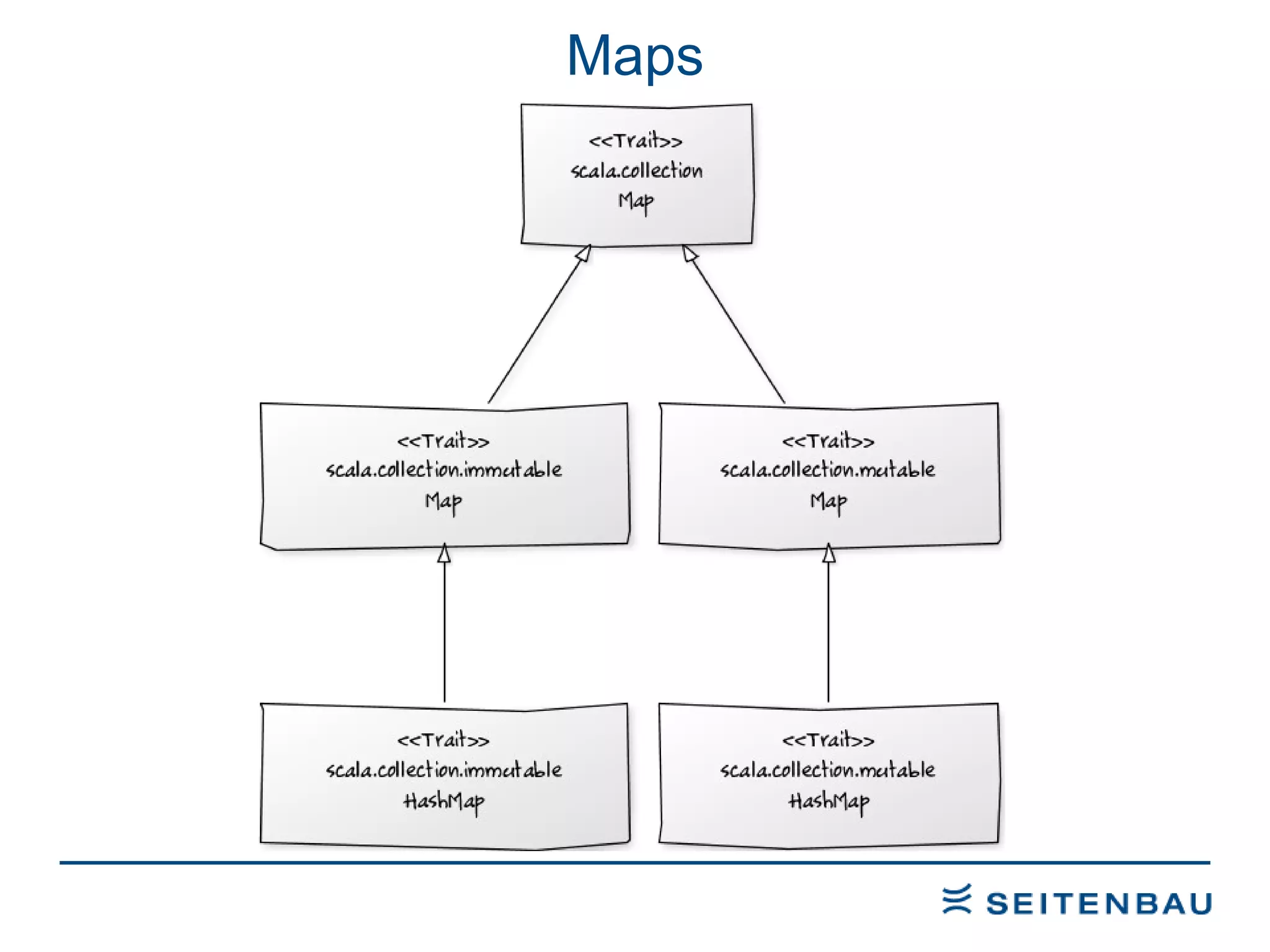
![Maps import scala.collection.mutable.HashMap val treasureMap = new HashMap[Int, String] treasureMap += 1 -> "Go to island." treasureMap += 2 -> "Find big X on ground." treasureMap += 3 -> "Dig." println(treasureMap(2))](https://image.slidesharecdn.com/scala-sdc2011-110924125651-phpapp01/75/SDC-Einfuhrung-in-Scala-30-2048.jpg)

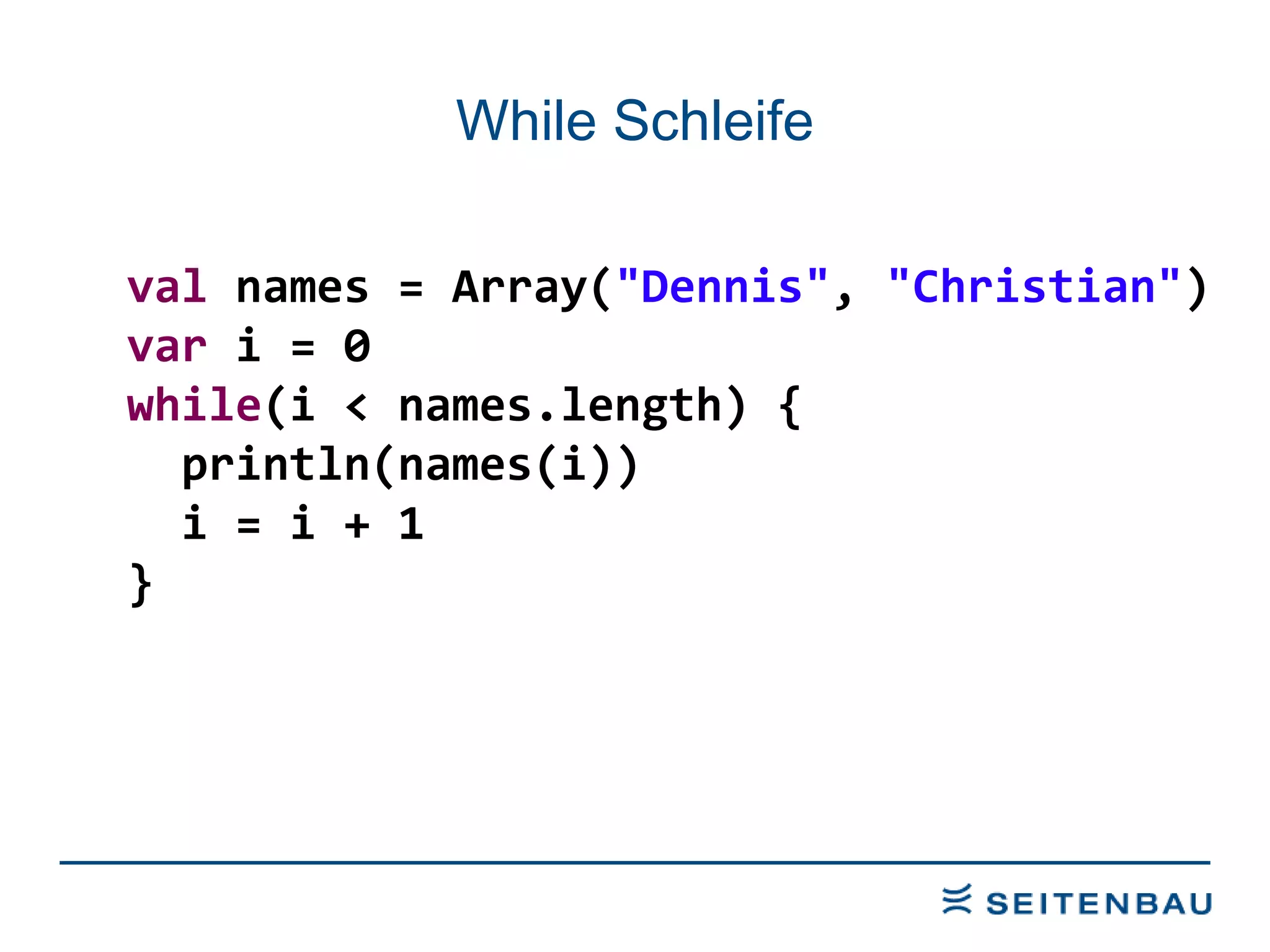

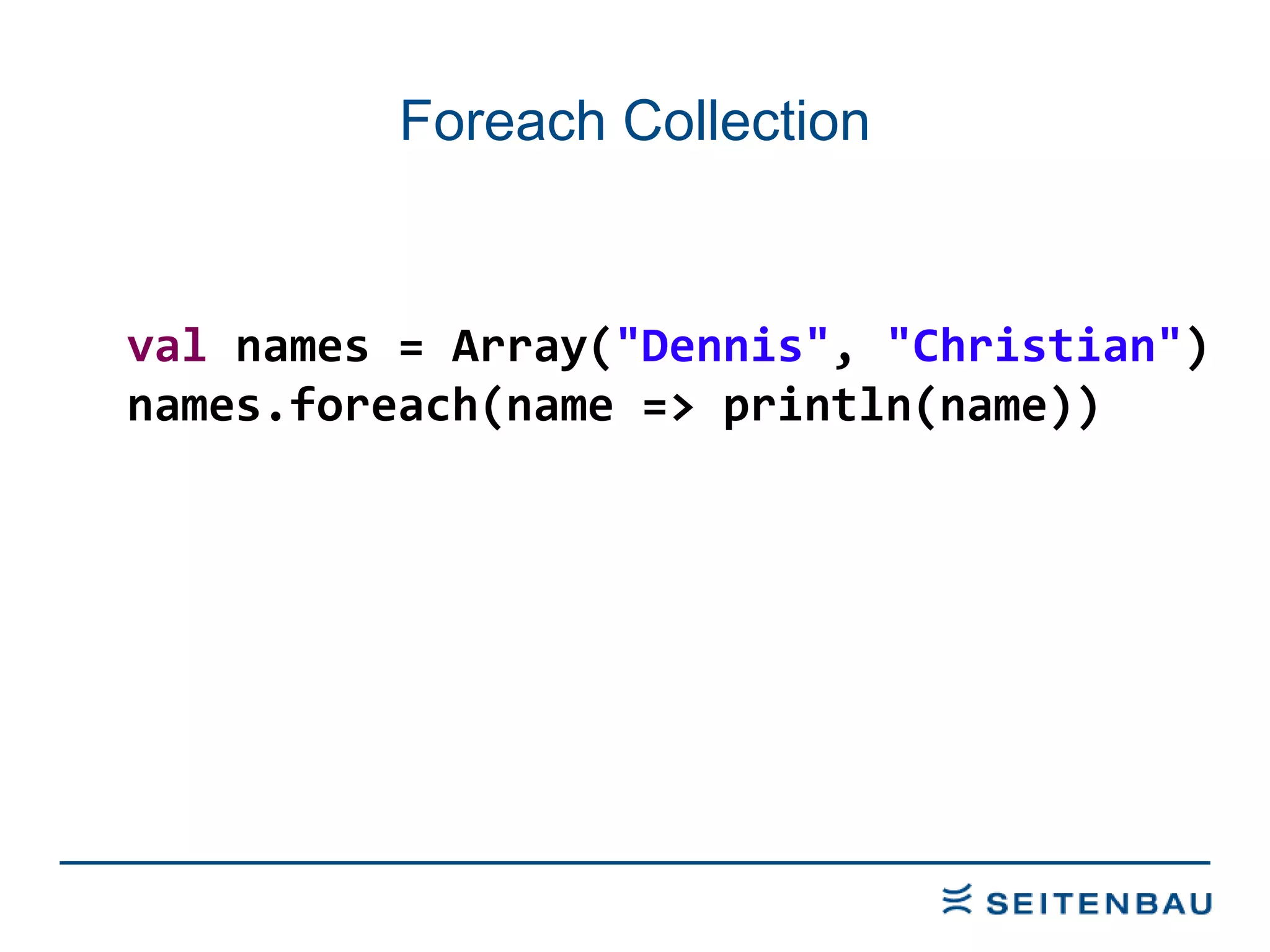
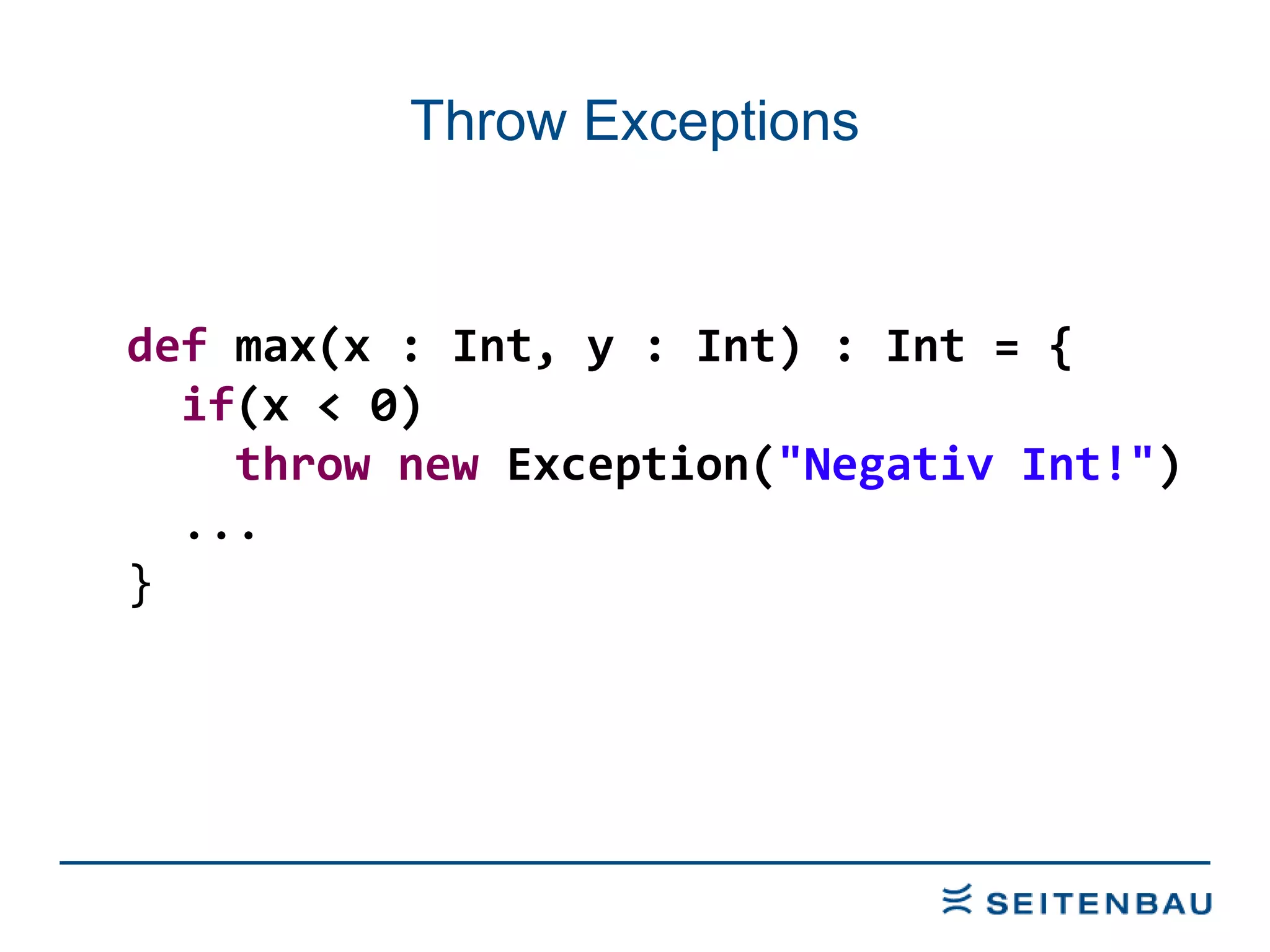


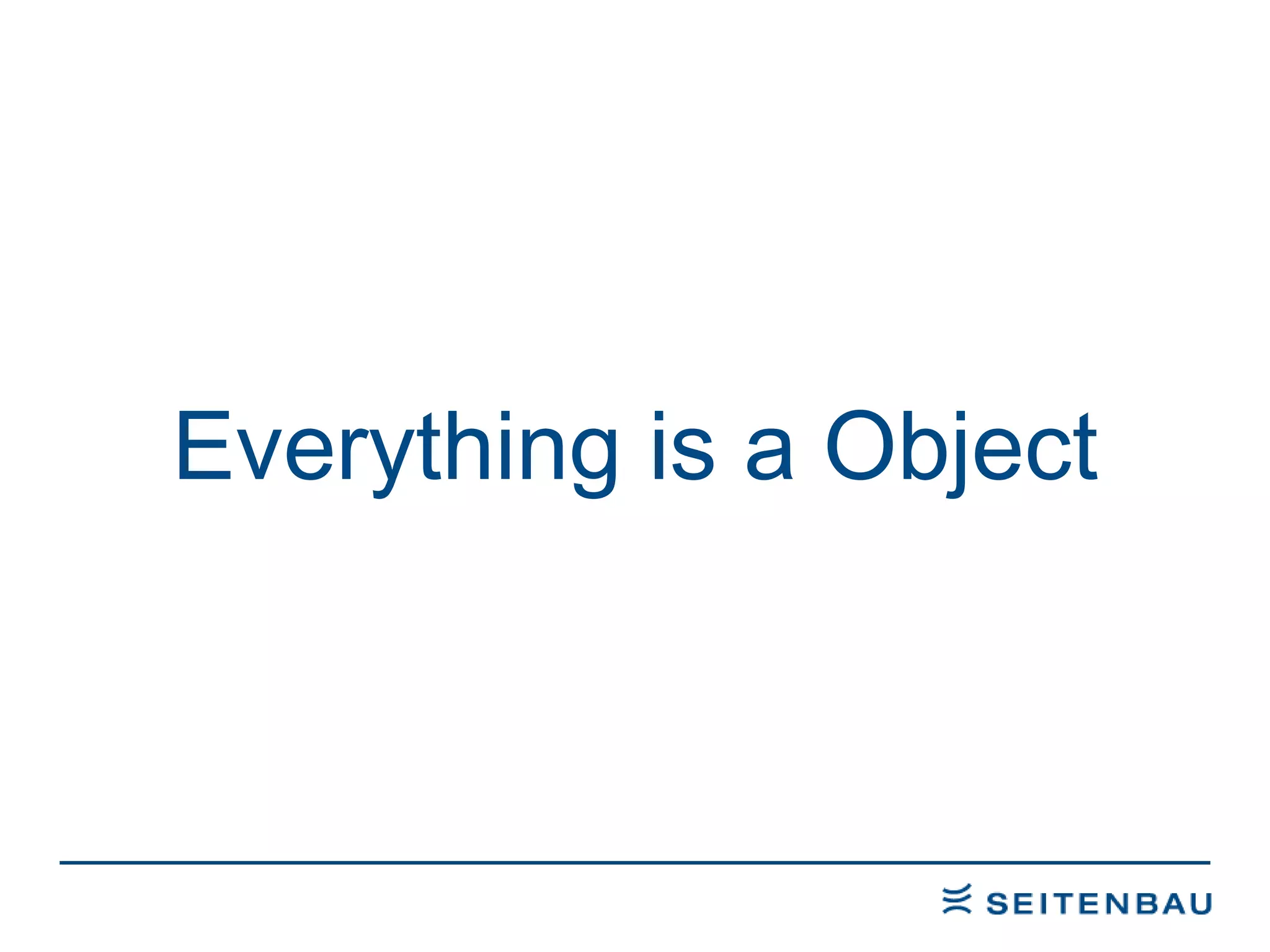
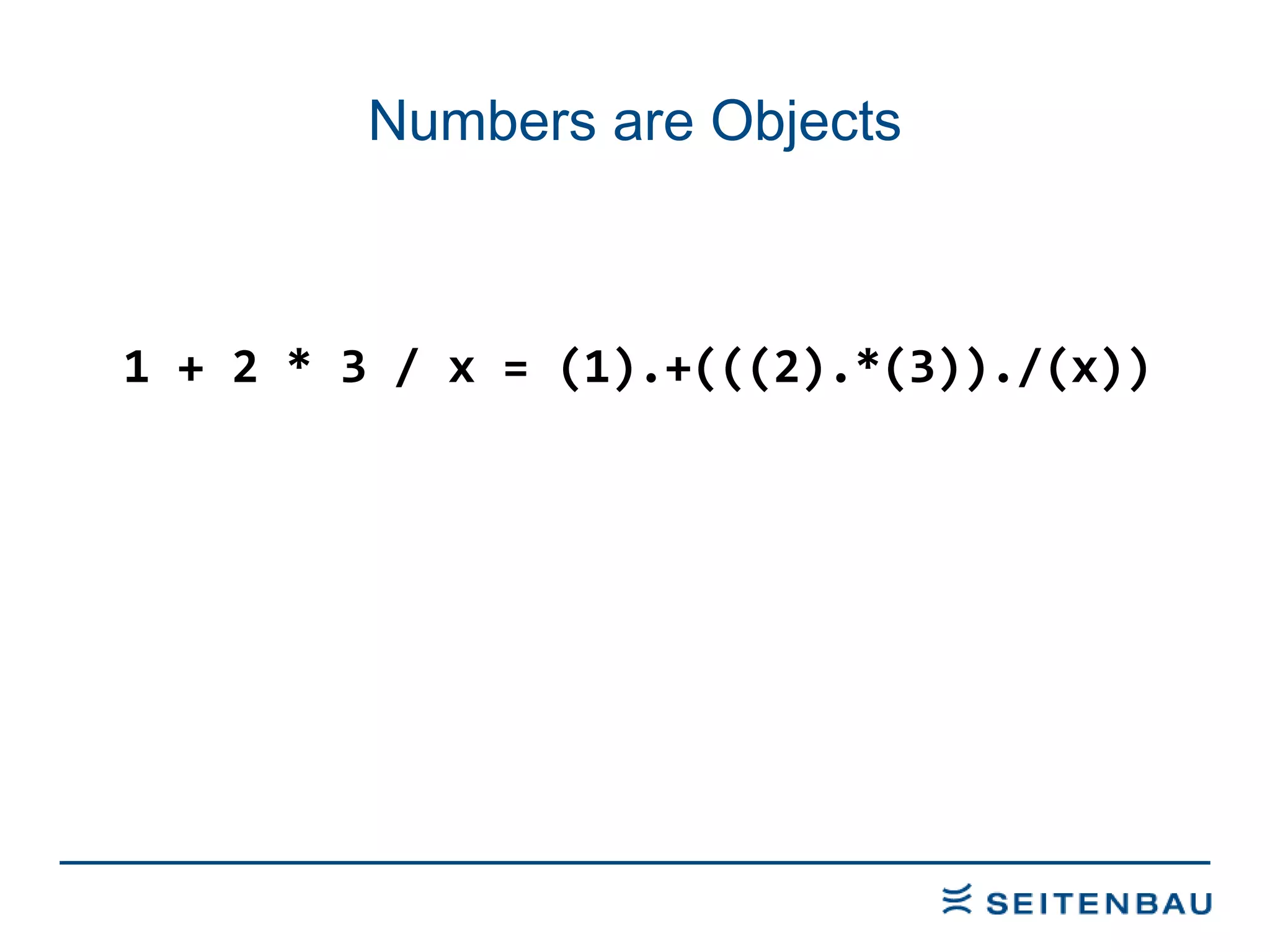
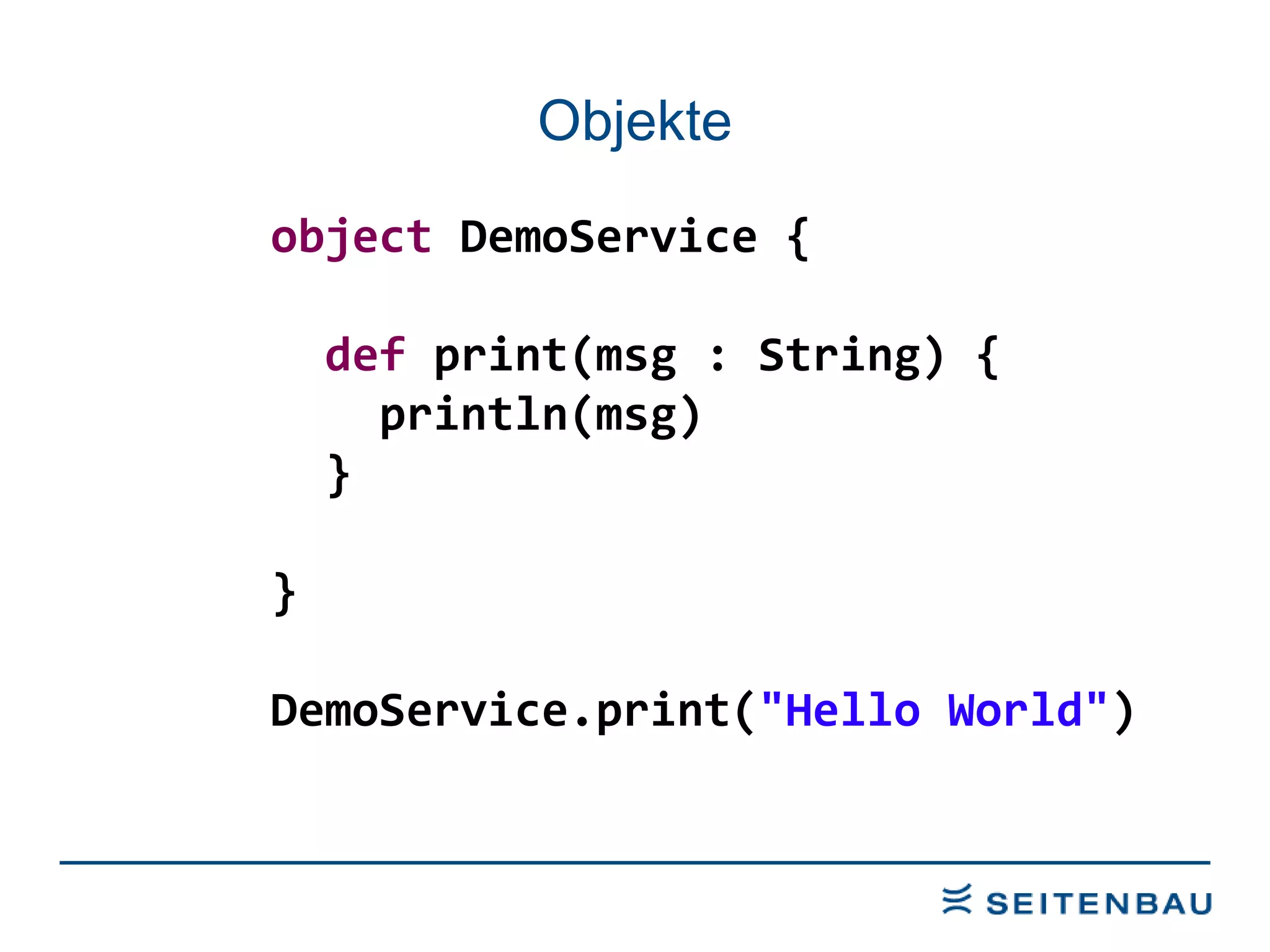
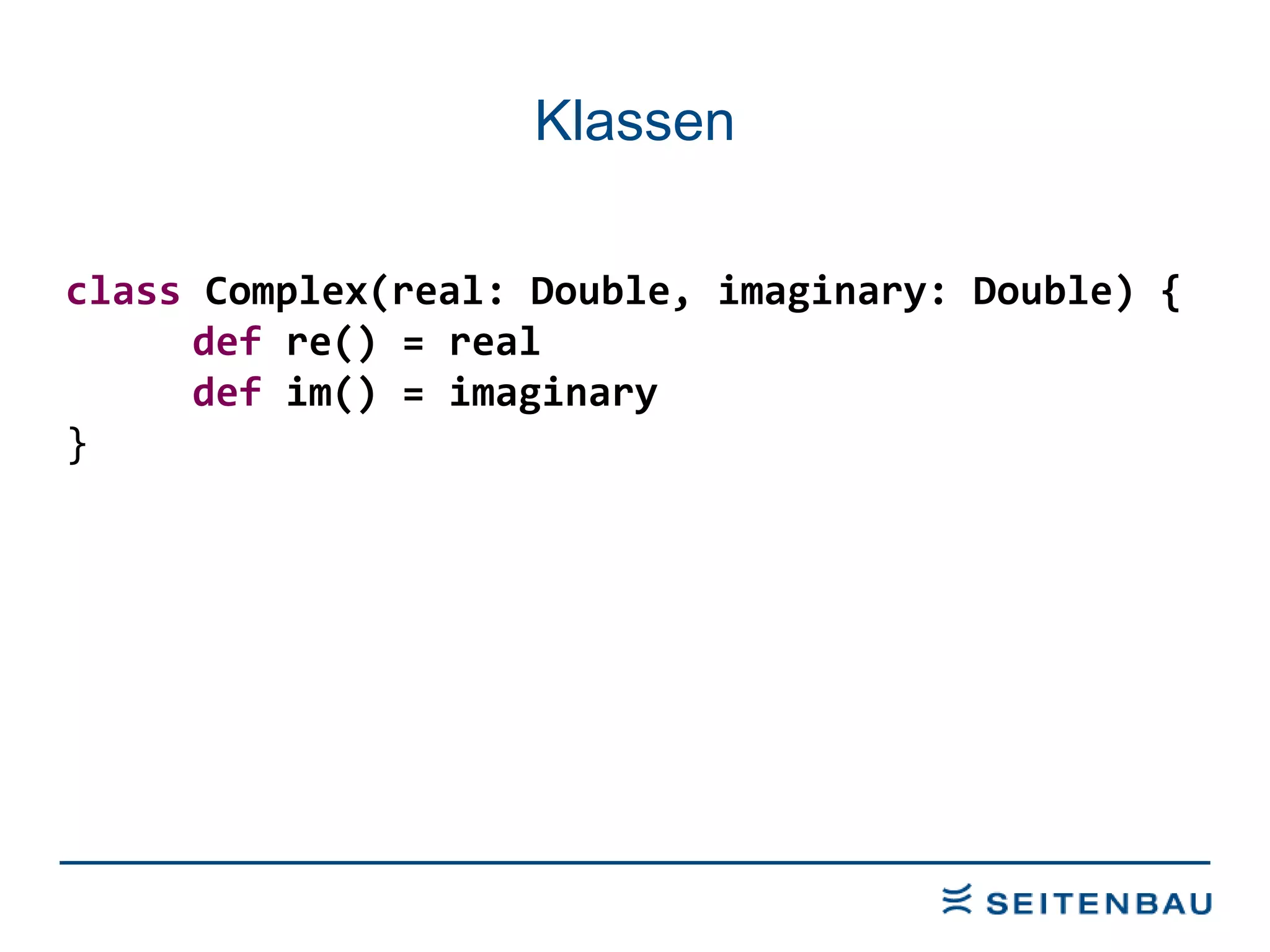
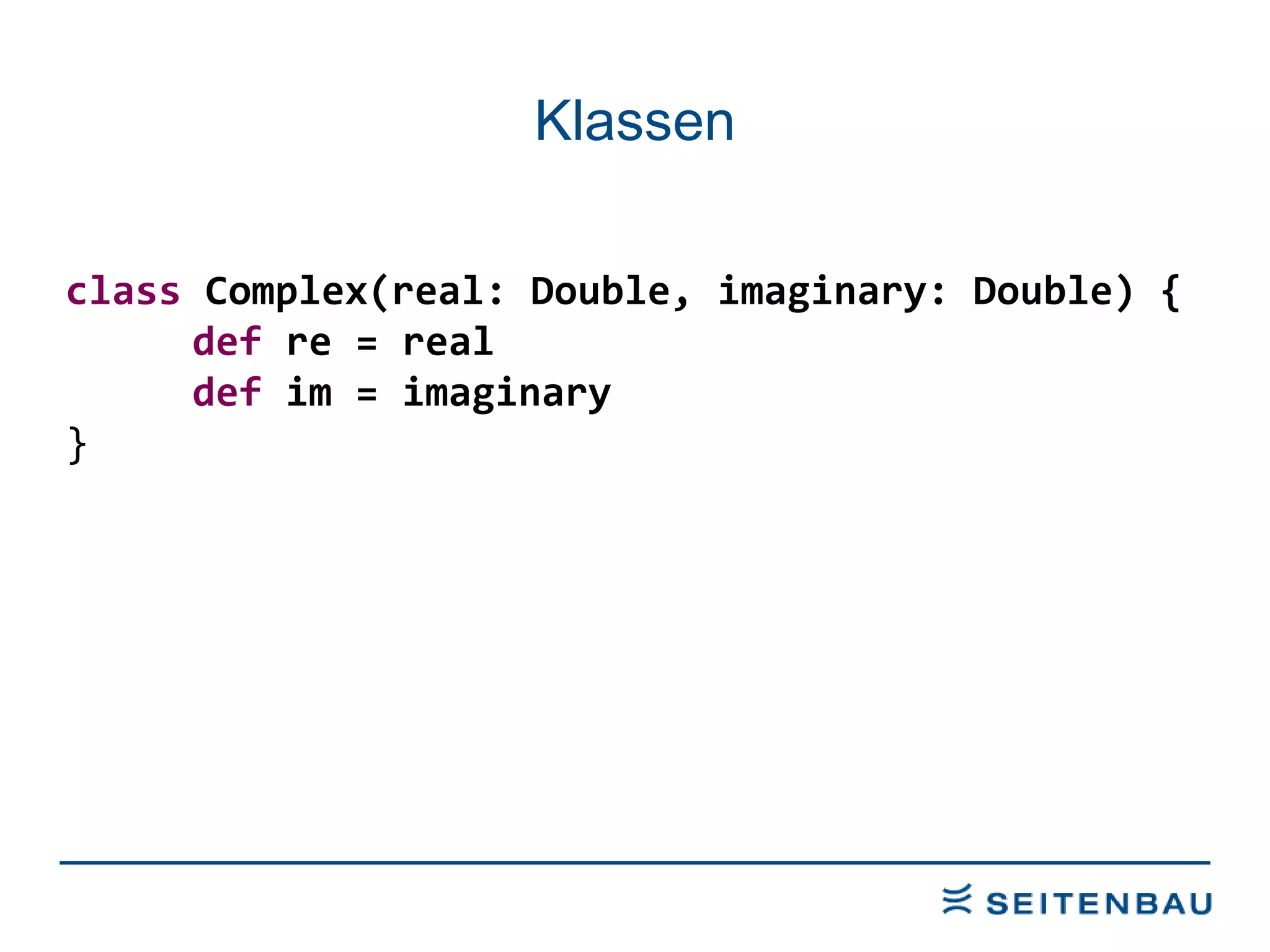
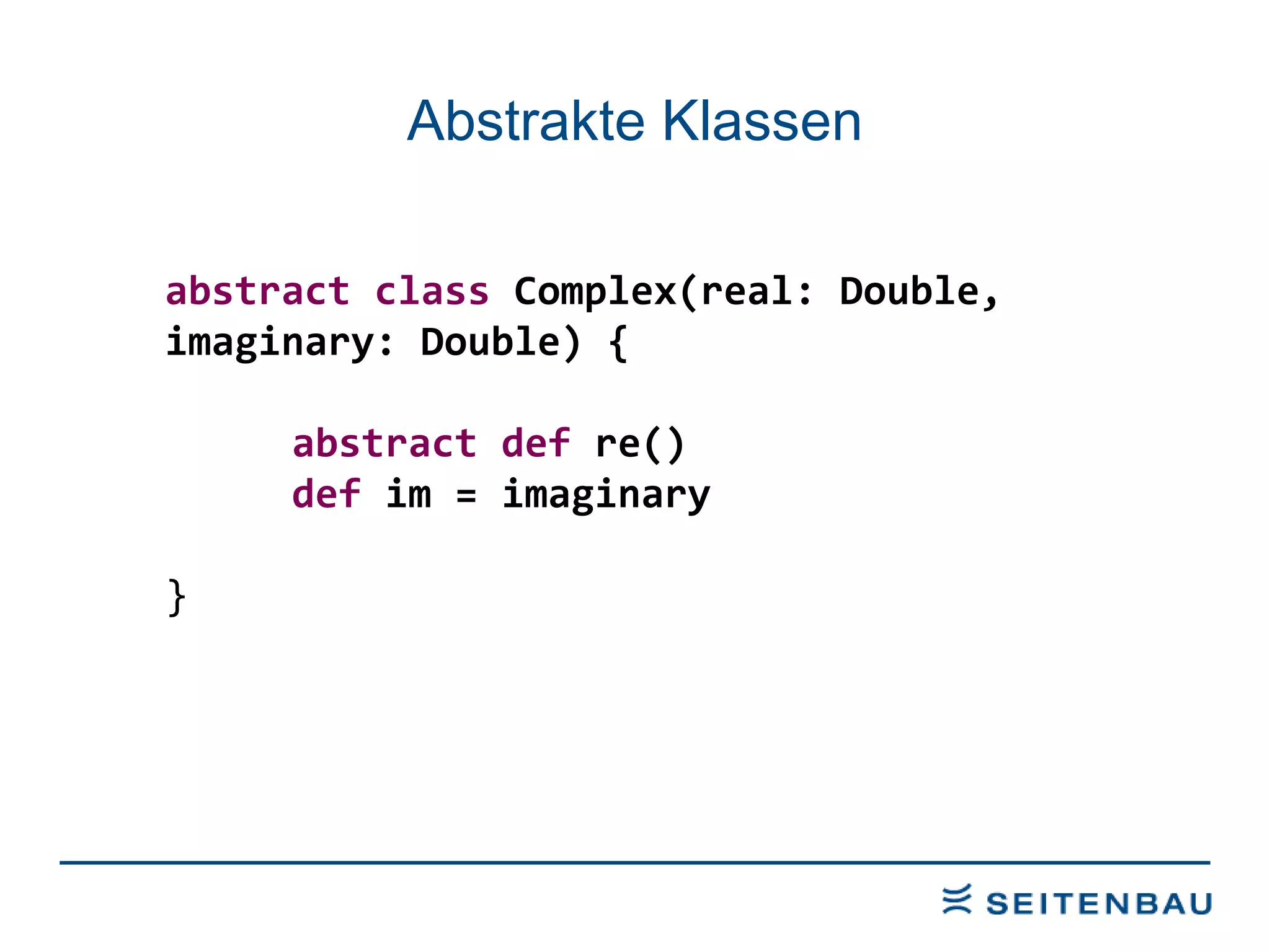
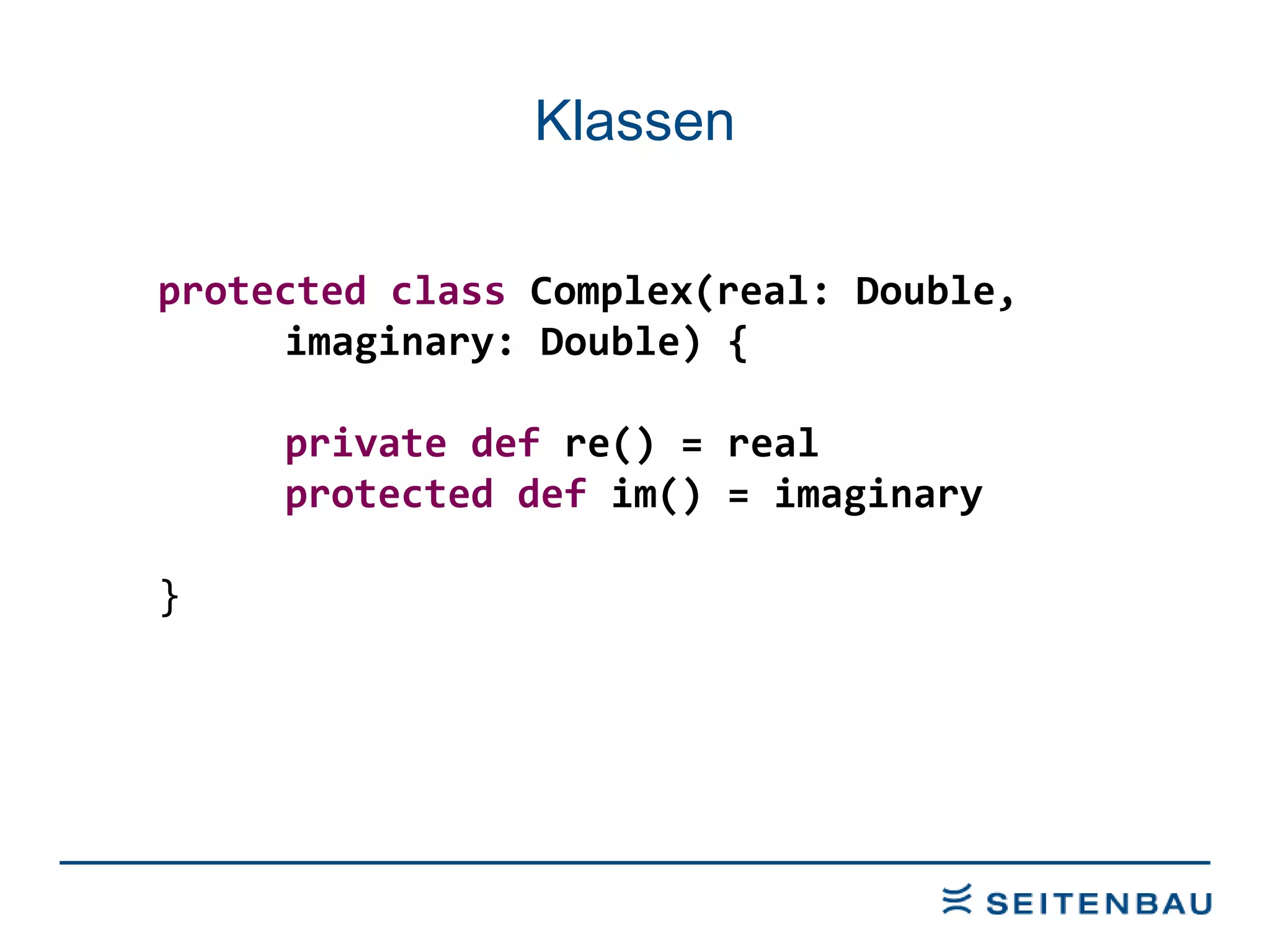

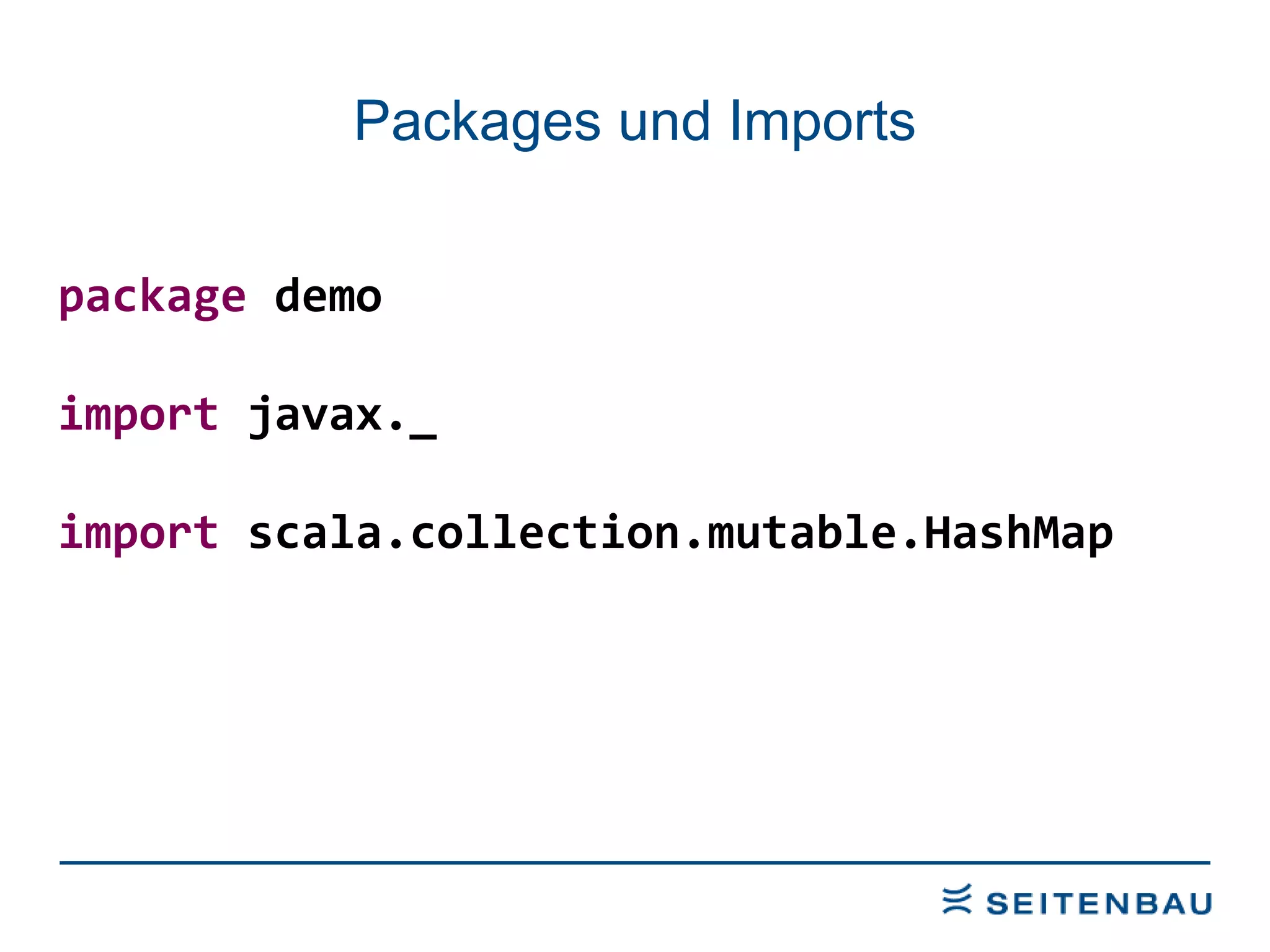

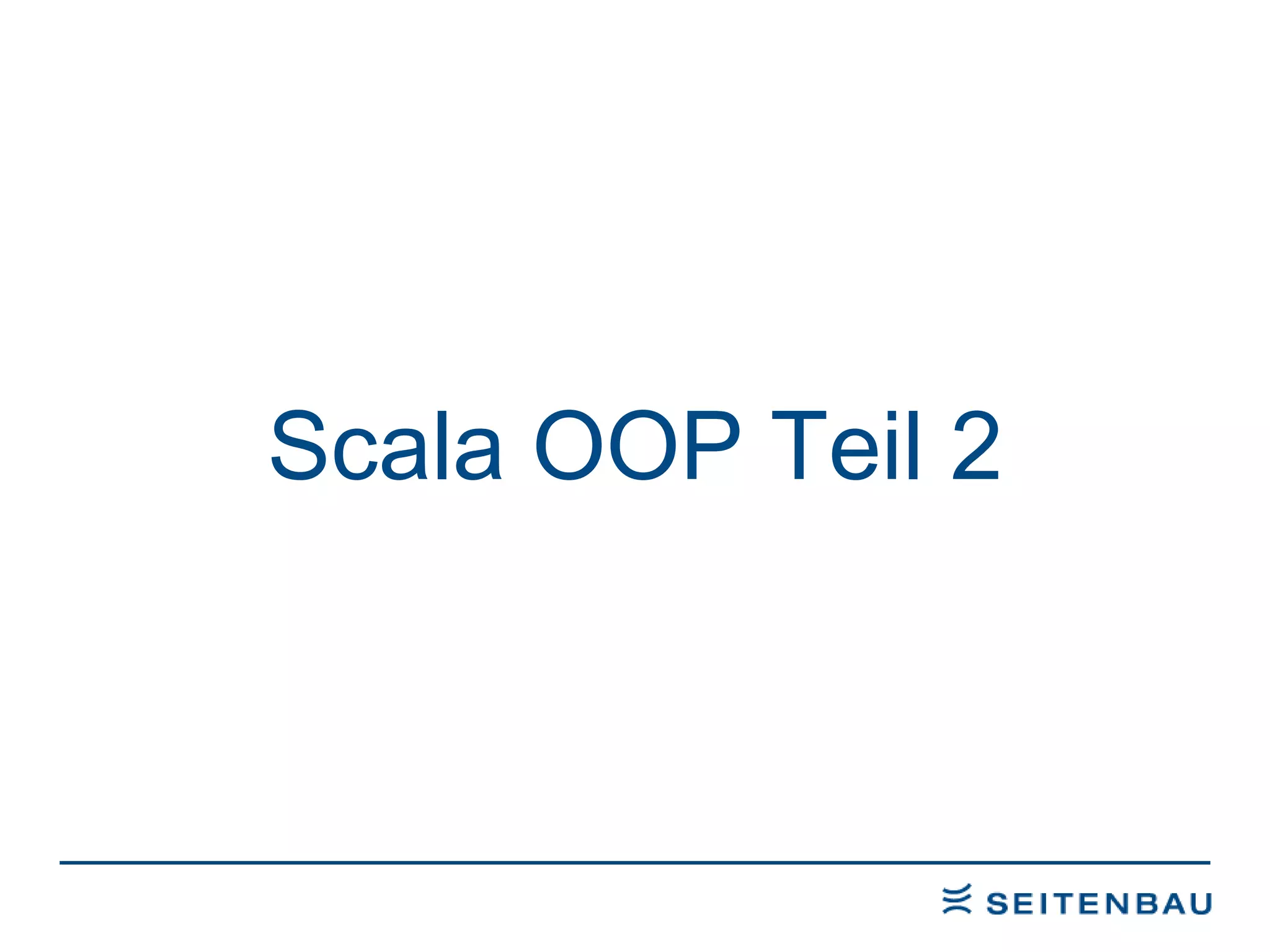
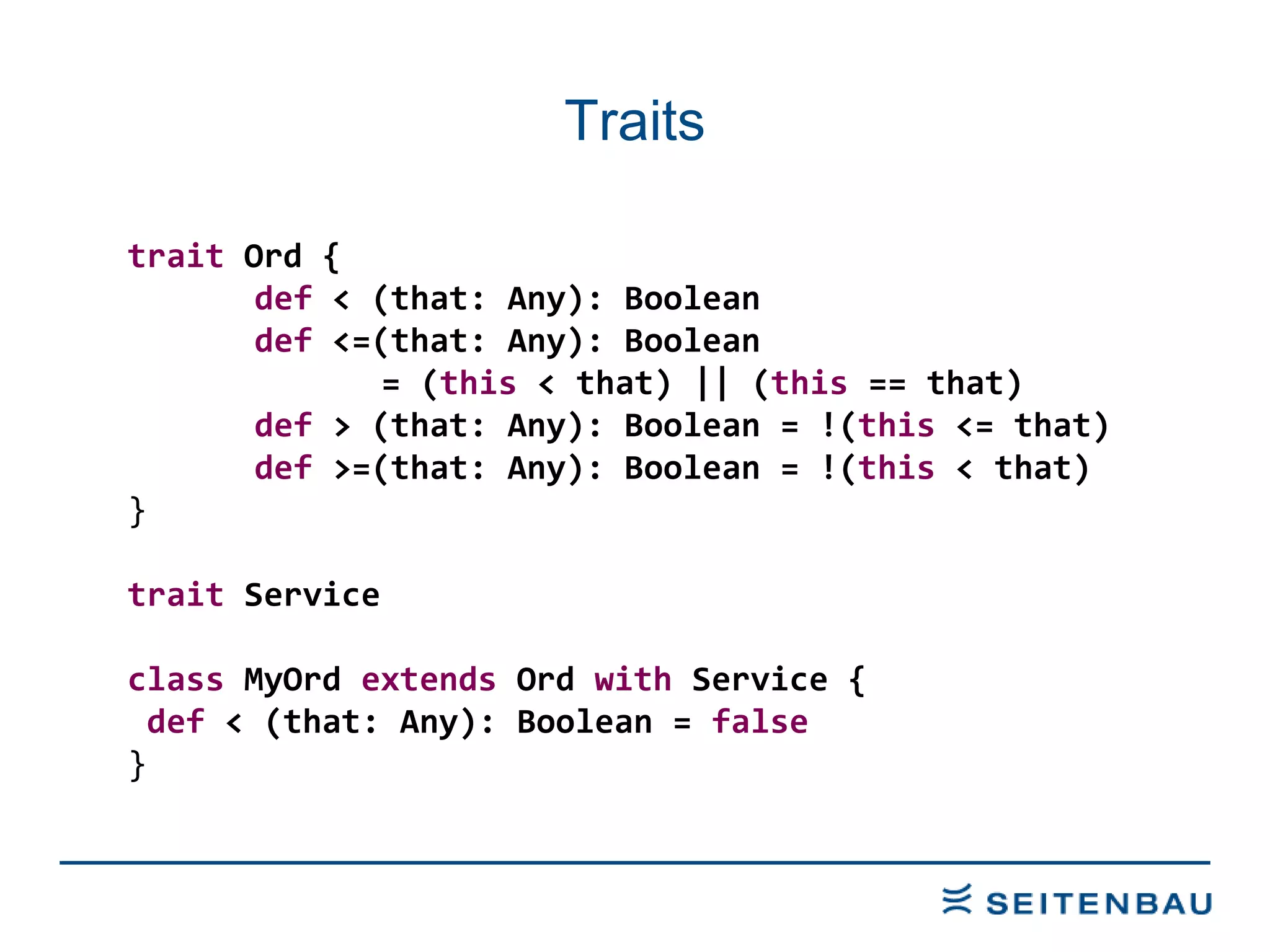
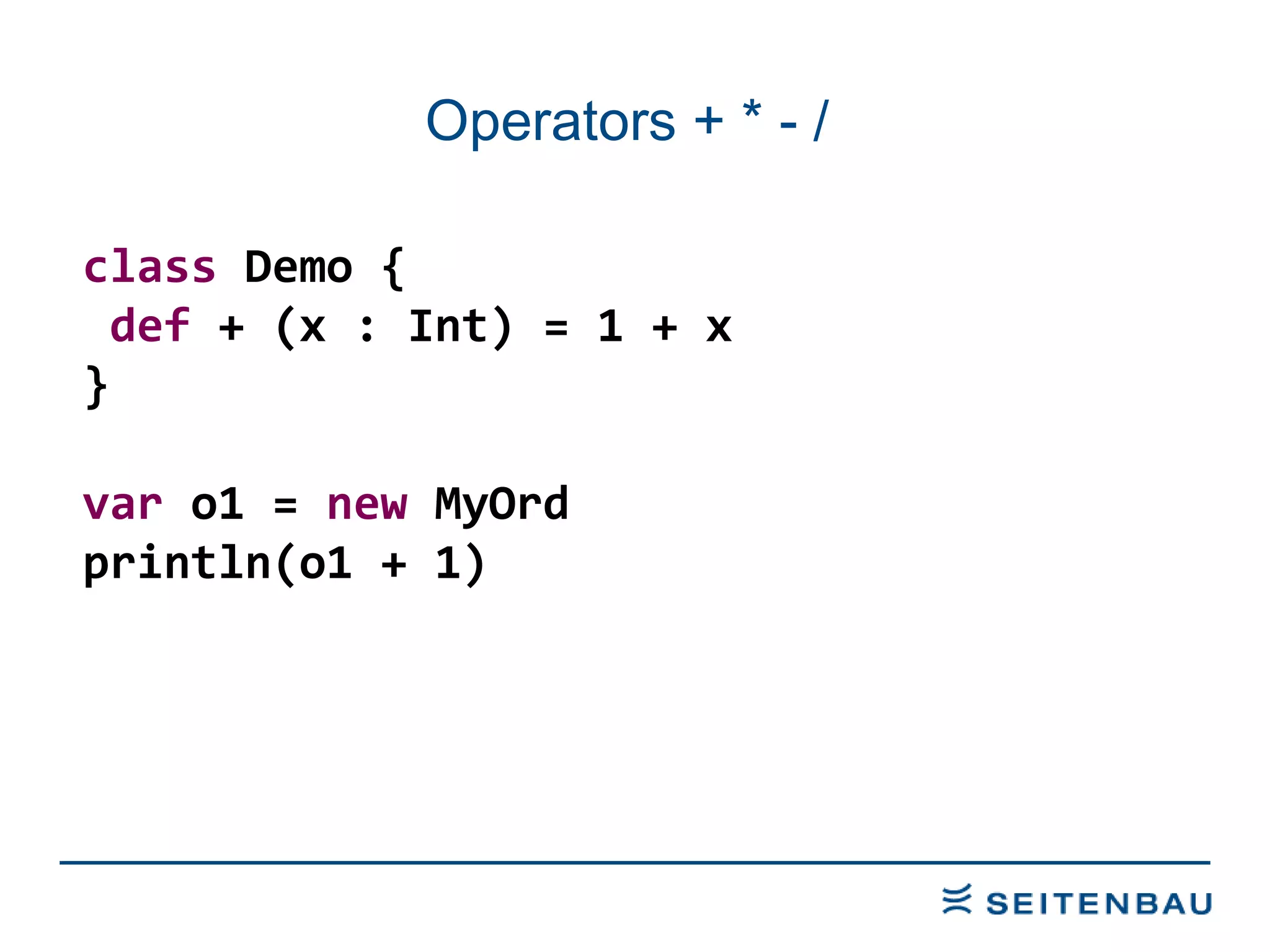
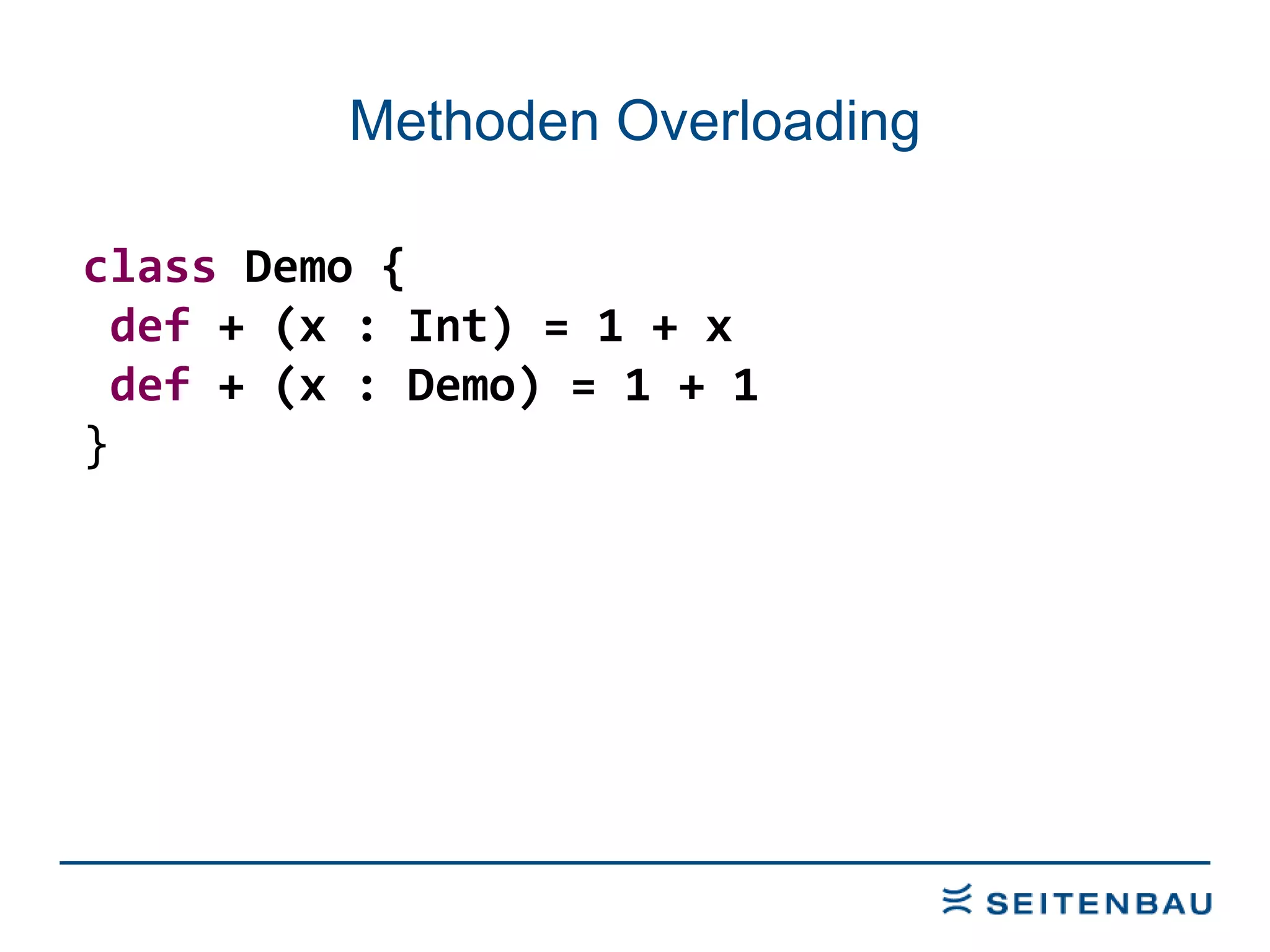
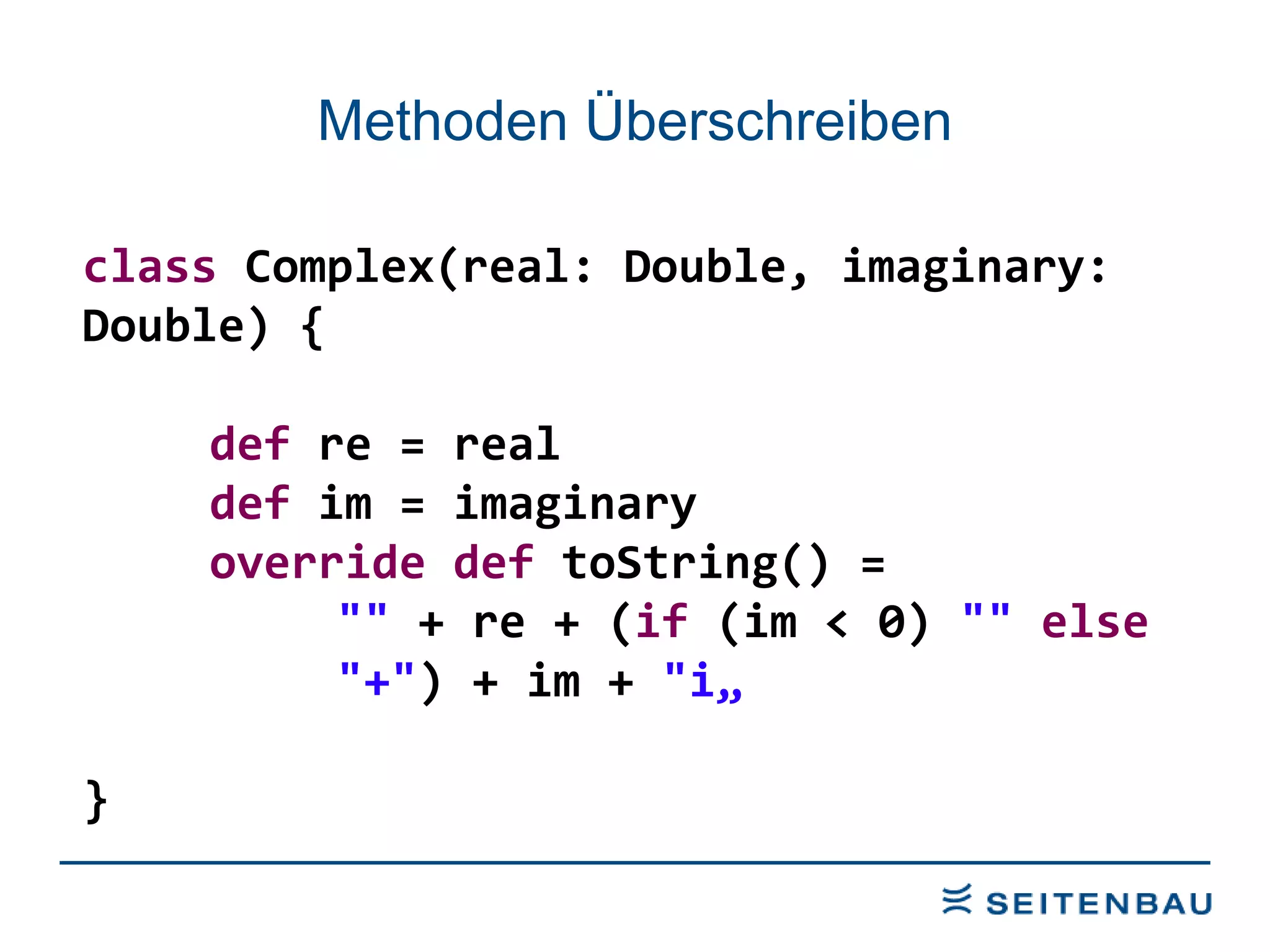
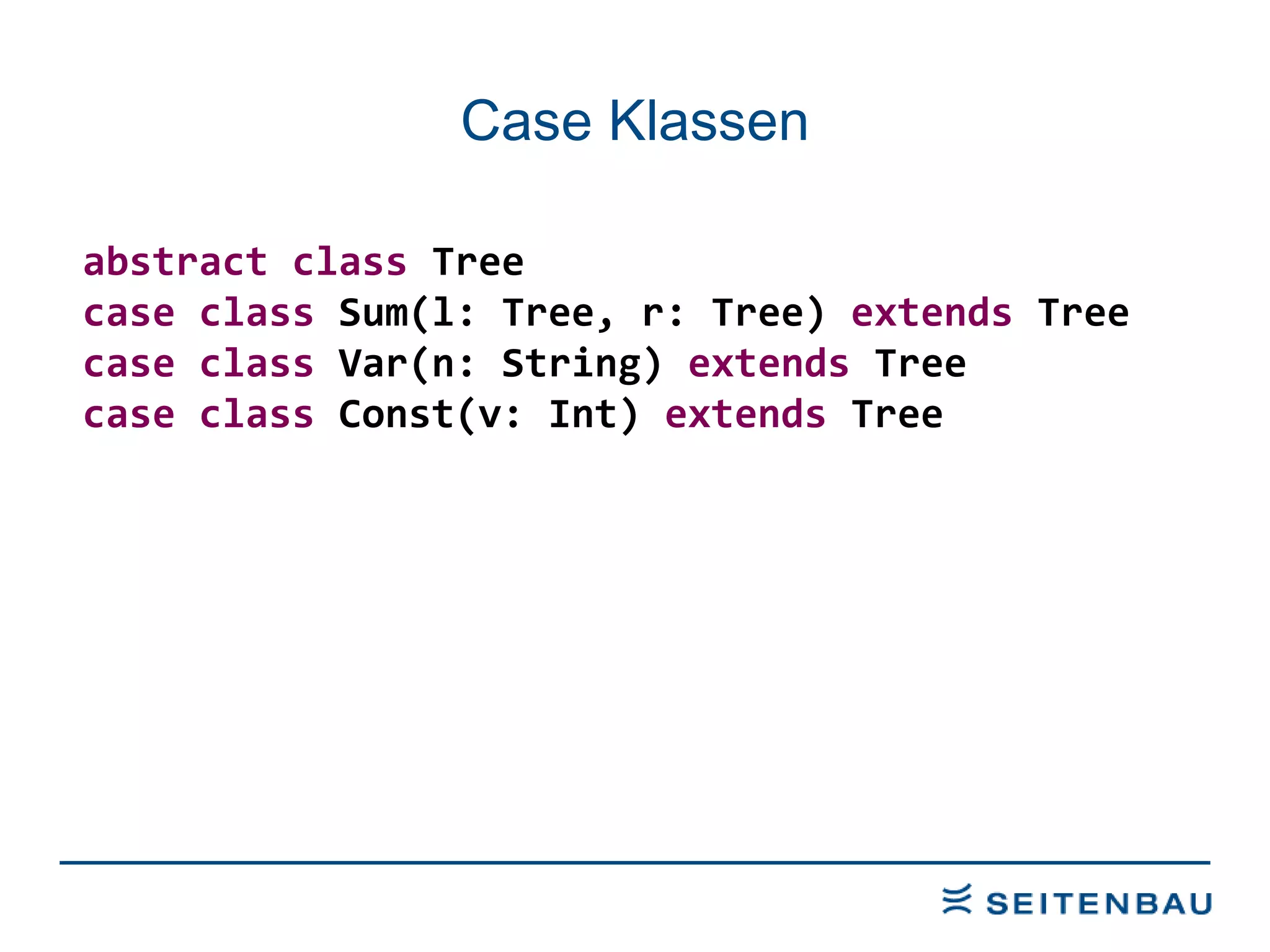
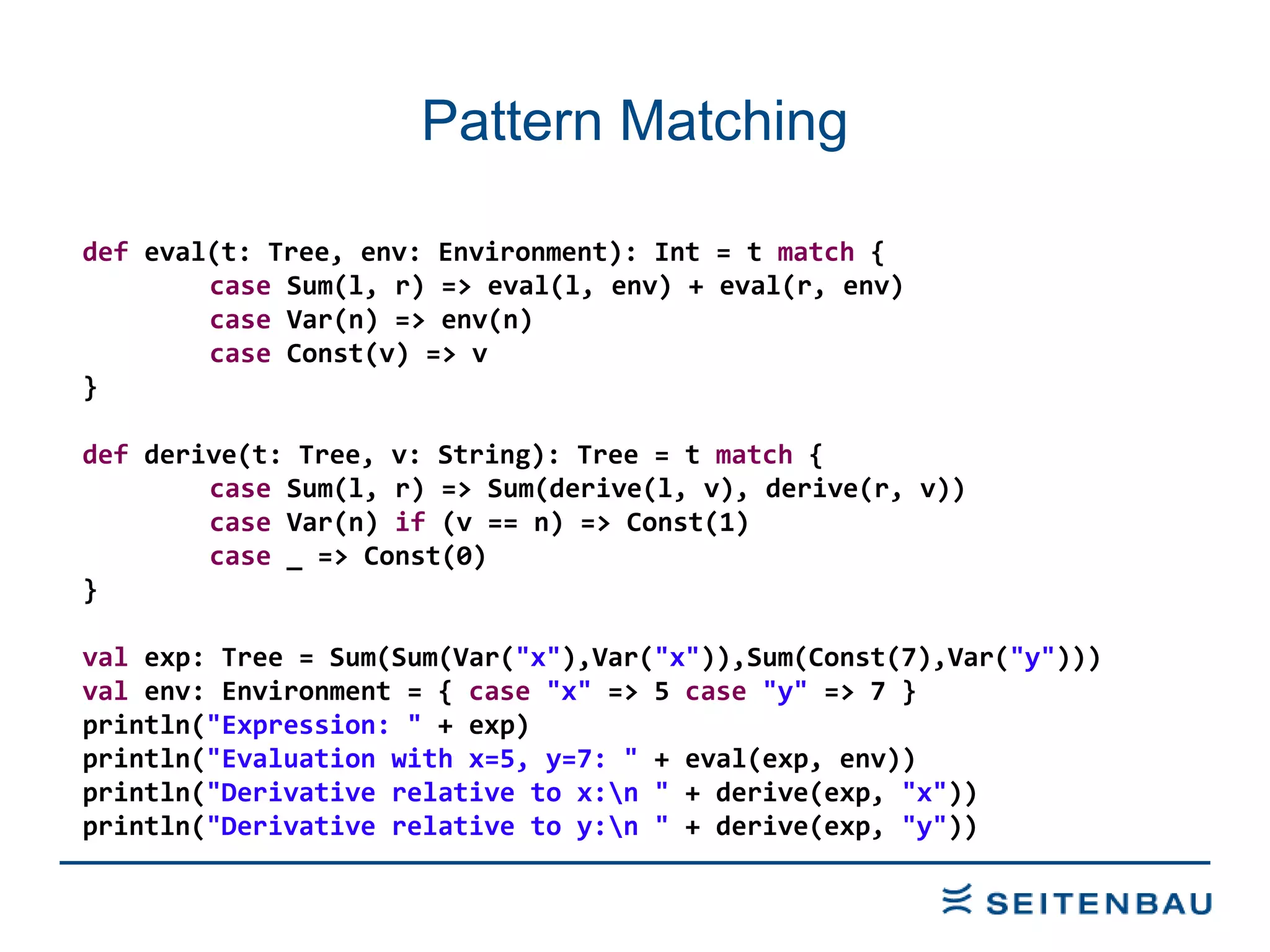

![For-Comprehensions for (p <- persons if p.age > 20) yield p.name def queens(n: Int): List[List[Int]] = { def placeQueens(k: Int): List[List[Int]] = if (k == 0) List(List()) else for { queens <- placeQueens(k - 1) column <- List.range(1, n + 1) if isSafe(column, queens, 1) } yield column :: queens placeQueens(n) } def isSafe(col: Int, queens: List[Int], delta: Int): Boolean for (b <- books; a <- b.authors if a startsWith "Ullman" ) yield b.title](https://image.slidesharecdn.com/scala-sdc2011-110924125651-phpapp01/75/SDC-Einfuhrung-in-Scala-56-2048.jpg)
![Genericity class Reference[T] { private var contents: T = _ def set(value: T) { contents = value } def get: T = contents } object IntegerReference { def main(args: Array[String]) { val cell = new Reference[Int] cell.set(13) println( "Reference contains the half of " + (cell.get * 2)) } }](https://image.slidesharecdn.com/scala-sdc2011-110924125651-phpapp01/75/SDC-Einfuhrung-in-Scala-57-2048.jpg)
![Generic Stack abstract class Stack[A] { def push(x: A): Stack[A] = new NonEmptyStack[A](x, this ) def isEmpty: Boolean def top: A def pop: Stack[A] } class EmptyStack[A] extends Stack[A] { def isEmpty = true def top = error( "EmptyStack.top" ) def pop = error( "EmptyStack.pop" ) } class NonEmptyStack[A](elem: A, rest: Stack[A]) extends Stack[A] { def isEmpty = false def top = elem def pop = rest }](https://image.slidesharecdn.com/scala-sdc2011-110924125651-phpapp01/75/SDC-Einfuhrung-in-Scala-58-2048.jpg)
![Lazy Values case class Employee(id: Int, name: String, managerId: Int) { lazy val manager: Employee = Db.get(managerId) lazy val team: List[Employee] = Db.team(id) }](https://image.slidesharecdn.com/scala-sdc2011-110924125651-phpapp01/75/SDC-Einfuhrung-in-Scala-59-2048.jpg)
![Implicit Parameters implicit object stringMonoid extends Monoid[String] { def add(x: String, y: String): String = x.concat(y) def unit: String = "" } implicit object intMonoid extends Monoid[Int] { def add(x: Int, y: Int): Int = x + y def unit: Int = 0 }](https://image.slidesharecdn.com/scala-sdc2011-110924125651-phpapp01/75/SDC-Einfuhrung-in-Scala-60-2048.jpg)
![Implicit Conversions implicit def int2ordered(x: Int): Ordered[Int] = new Ordered[Int] { def compare(y: Int): Int = if (x < y) -1 else if (x > y) 1 else 0 }](https://image.slidesharecdn.com/scala-sdc2011-110924125651-phpapp01/75/SDC-Einfuhrung-in-Scala-61-2048.jpg)
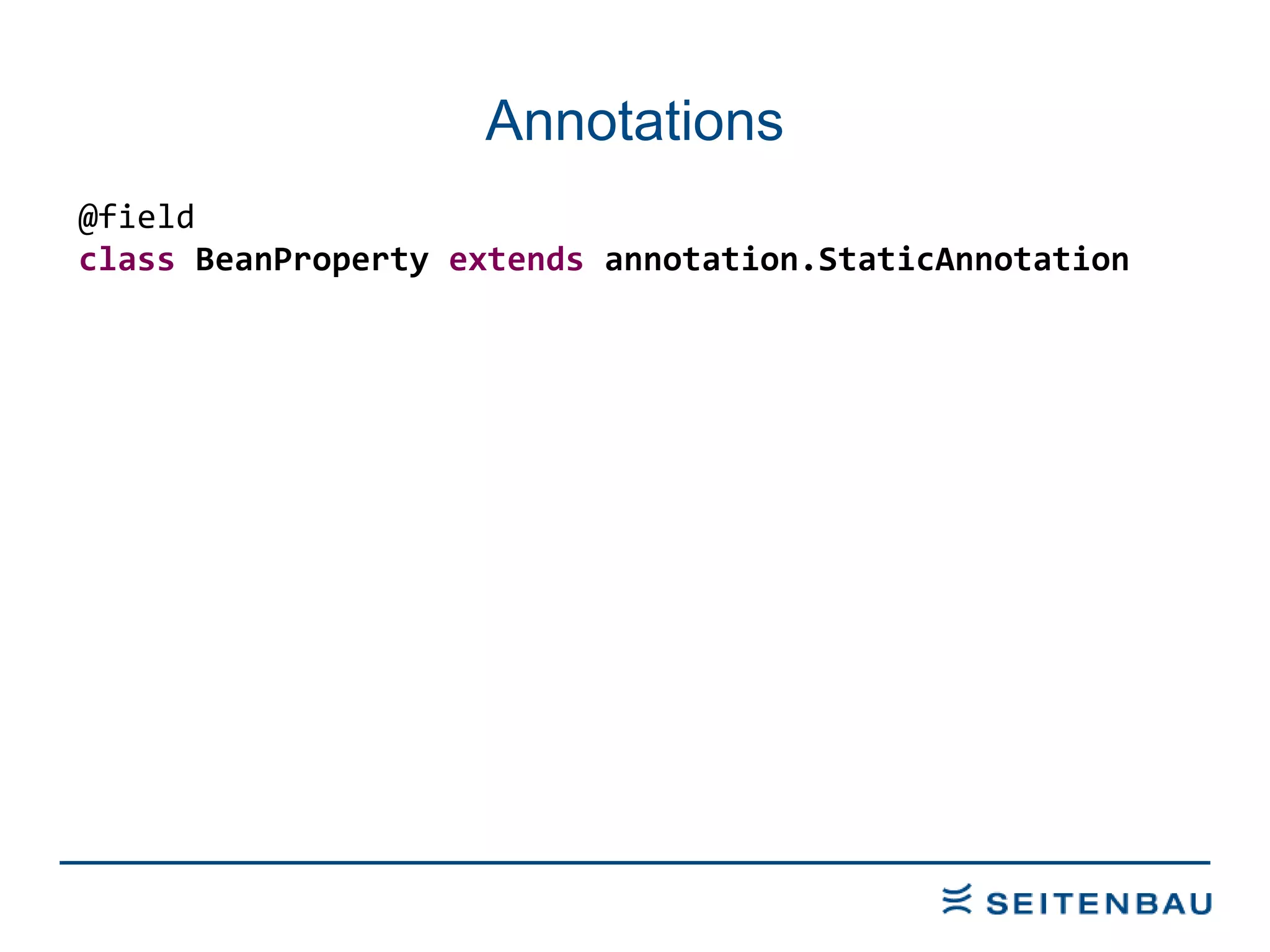
![Scala Java Integration // Java public class MainJava { public static void main(String[] args) { Point point = new Point(); point.name(); } } // Scala class Point(x : Int, y : Int) { var name = "Bin ein Point" def this () = this (0, 0) override def toString = name + " : x=" + x + " : y=" + y }](https://image.slidesharecdn.com/scala-sdc2011-110924125651-phpapp01/75/SDC-Einfuhrung-in-Scala-63-2048.jpg)
